
Campers check out carnivore's chompers
Junior campers are enthralled by tyrannosaurus rex at the T.rex Discovery Centre in
from Camp Harding. For the story about this year’s camp, see page 11.


Junior campers are enthralled by tyrannosaurus rex at the T.rex Discovery Centre in
from Camp Harding. For the story about this year’s camp, see page 11.
By Canon Susan Page
REGINA — On May 22, five delegates from the Diocese of Qu’Appelle piled into a van driven by Bishop Helen Kennedy, and made the eight-hour trip from Regina to Calgary.
Along with Bishop Helen, the delegates included Rev. Tracey Taylor, Deacon Susan Page, Wendy Godfrey, and Linda Kapasky.
We were on our way to attend the 51st Session of Synod of the Ecclesiastical Province of Rupert’s Land. The Synod host was the
Diocese of Calgary, and the event took place at the University of Calgary main campus. The theme of the synod was “Arise, Shine” based on Isaiah, Chapter 60.
The Synod formally began on the afternoon of May 23. After dinner we made our way by chartered bus to Holy Cross Anglican Church for the opening Eucharist and reception.
The hosts at Holy Cross warmly welcomed us, and at the reception we had a chance to meet delegates from other dioceses.
On May 24, the diocesan presentations

began, and continued through Saturday. Every diocese from the province was asked to give a 10-minute presentation demonstrating the ways in which we were fulfilling the theme of “Arise, Shine.”
All of the presentations were wonderful explanations of how God is working amongst them.
The Diocese of Qu’Appelle chose to speak about the “Reconciliation and Repurposing of St. Matthew’s,” an Anglican parish in Regina that had been closed and had amalgamated with four others to form a new one.
Our presentation was very well received, and generated many questions about how we plan to repurpose the church building, and the steps we have taken, and those we plan to take, to make our vision of this property a reality.
The presentation has been sent to the Province of Rupert’s Land Facebook page for future viewing.
Of course there were several resolutions to be discussed, most of which were passed unanimously with little or no debate. However, when the time Continued on page 5
St. John's Minster in Lloydminster celebrates its 120th birthday in style
By the Rev. Canon Michael Stonhouse
LLOYDMINSTER (Stoon) — Maybe we need to take ancient stories more seriously.
“The Little Engine That Could,” for instance, reminds us of the power of perseverance, even when faced with seemingly impossible odds. Or the biblical story of the little boy offering his meagre lunch — as in the Feeding of the 5,000, as related in John’s Gospel — also tells us that gifts, no matter how small or insignificant, when willingly given over to the Lord’s service can multiply and accomplish wonderful things.
That is what St. John’s Minster Church in Lloydminster recently remembered as it celebrated its 120 th anniversary Homecoming Weekend from July 5 to 7.
Though its congregation is quite small and many of its members are “getting on in years,” they, with the assistance of some from the nearby St. Saviour’s Continued on page 2

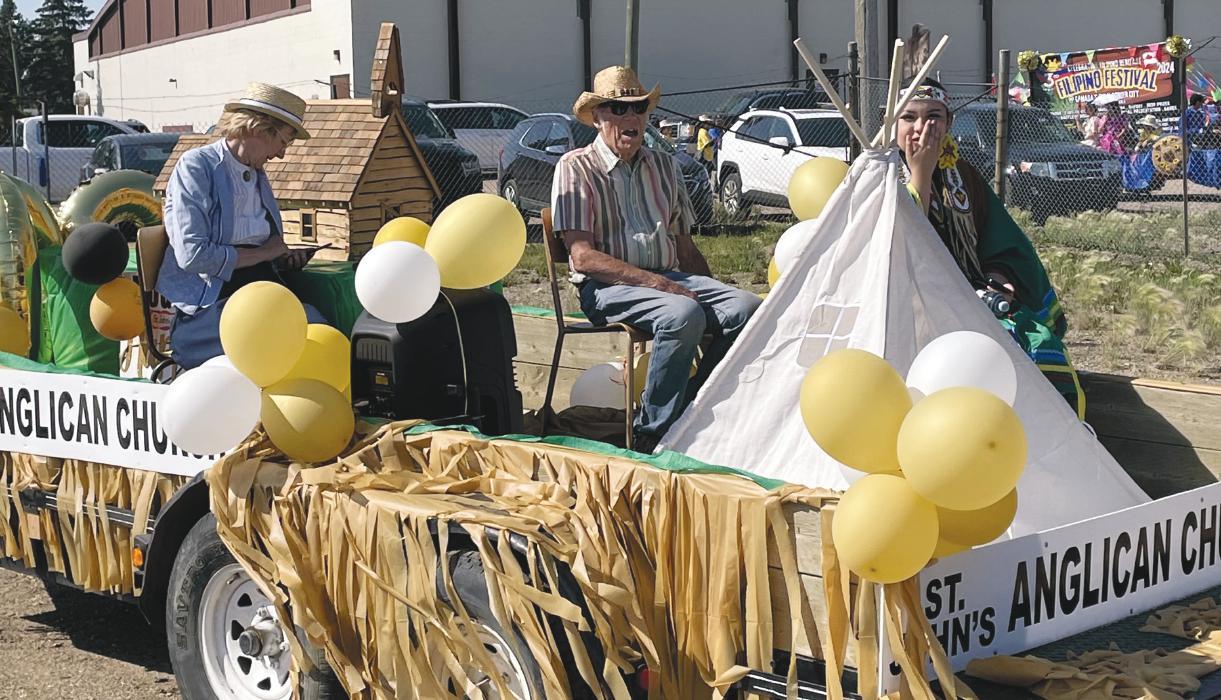
During the Lloydminster Exhibition Days parade, following the Homecoming Weekend, the parish presented a float that featured both a model of the “old Log Church” and a teepee, and representatives of the partnership between the town and the Onion Lake First Nation that had built the “old log church” together. Photos submitted
Continued from page 1 Anglican Church put on a full and delightful weekend.
The occasion for this weekend celebration lay in the first Sunday service in Lloydminster ever held in an actual church, July 24, 1904. Before that service, there had been services in private homes and elsewhere, but none in a church of their own.
So, the services held that date in what is now called “the old Log Church” were particularly significant for this new Anglican congregation.
But that was not the only reason for the significance of this date and this church: the erection of the Log Church was a partnership of the people of the Onion Lake First Nation, guided by the Rev. John Matheson, and the people of Lloydminster. People from Onion Lake provided the timber, brought it down, helped construct the church and were part of the celebration when it opened.
So, this weekend was a special celebration of this co-operation, a cooperation that continues even to this day, as some of the descendants of these builders are members of St. John’s congregation even today.
The Homecoming weekend was jam-packed. Friday night featured a barbecue, an incredible display of photographs,
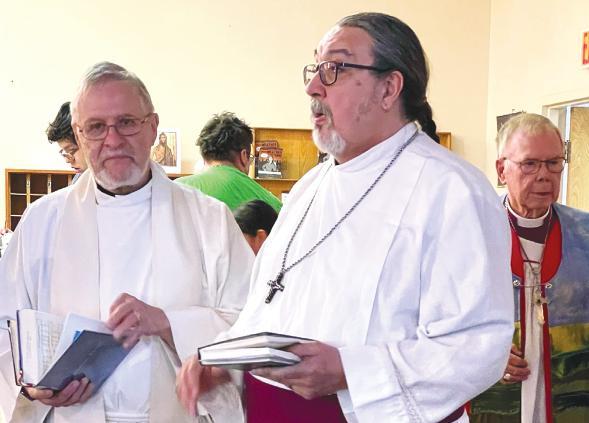
Rod Andrews, prior to the Sunday morning service of the Lloydminster Homecoming Weekend.
banners from the past and copious photographs, photo albums and newspaper clippings, and a time for people to meet and greet.
It was glorious to see old friends “connect up” and people discover ties and tell stories.
Saturday consisted of a pancake breakfast, a bus tour of city sites, both old and new, and a catered banquet.
Our guest speaker was Archbishop Chris Harper, the National Aboriginal Archbishop, who is himself a member of the Onion Lake First Nation and this congregation, and whose forebearers had a part in the Log Church construction.
On Sunday morning, Archbishop Chris was our celebrant and preacher for a festive Eucharist, which
was followed by a generous potluck lunch.
Several days later, on the Wednesday, we had a float in the Lloydminster Exhibition Parade, featuring a model of the Log Church and a teepee, once again symbolizing the historic partnership between our two groups.
All in all, these events were the result of a dedicated team of volunteers who did not allow their small numbers to dissuade them or inhibit their efforts, but who, together, were able to pull off the impossible.
One congregant put it this way, “On behalf of the congregation, I would like to extend our heartfelt gratitude for the unforgettable 120year celebration at St. John’s Anglican Church. It was a joyous occasion



Published by the Dioceses of Saskatchewan, Saskatoon and Qu’Appelle. Published monthly except for July and August.
Whole No. 292, Vol. 53 No. 1
A Section of the Anglican Journal
SUBSCRIPTIONS
For change of address, undeliverable copies and subscription list updates, contact:
• Your parish
• e-mail: circulation @national.anglican.ca
• Or send to Saskatchewan Anglican, c/o Anglican Journal, 80 Hayden Street, Toronto, Ont. M4Y 3G2
RATES $10 in Canada
$17 outside Canada
that brought us together in a spirit of unity and fellowship.”
The rich history and traditions of our church were beautifully showcased during the celebration, reminding us of the legacy we carry forward. The music, the decorations, and the words shared resonated deeply with all who were present, creating cherished memories that will be treasured for years to come.
“We owe a debt of gratitude to all those who worked tirelessly behind the scenes to make this event a success. From the organizers, volunteers and to the speakers, each contribution was invaluable and greatly appreciated,” a parishioner said.
“As we reflect on the milestone of 120 years, we are filled with a renewed sense of purpose and dedication to continue the mission of St. John’s Anglican Church. May the spirit of unity and love that permeated the celebration guide us as we move forward together.”
As with many congregations, St. John’s has had to weather the effects of COVID-19 and an aging population, but this marks a new start and a confident look into the future.
At 120 years, we have only just begun.
For more photos from Lloydminster, see page 19.
SUBMISSIONS
Submissions for the October issue must be received by the diocesan editor no later than Aug. 27 All pictures must be sent as JPEGS and 1 MB (megabyte) in size.
CONTACT
INFORMATION
Managing Editor: Jason Antonio SKAnglicanEditor@gmail. com 1501 College Ave Regina, Sask., S4P 1B8 Phone: 306-737-4898
Qu’Appelle: Joanne Shurvin-Martin joannesm@myaccess.ca 6927 Farrell Bay Regina, Sask., S4X 3V4 Phone: 306-775-2629
Saskatoon: Rev. Peter Coolen ptrcoolen@sasktel.net 820 Avenue I South, Saskatoon, Sask., S7M 1Z3 Phone: 306-244-0935,
Saskatchewan: Mary Brown mary1949brown@gmail.com Box 25, Shellbrook, Sask., S0J 2E0 306-922-5159
Advertising agent: Angela Rush saskatchewan.anglican.ads@ gmail.com 905-630-0390
PUBLISHING DETAILS
Published from 59 Roberts Place Regina, Sask., S4T 6K5
By Bishop Helen Kennedy
Hope is a fundamental human emotion that drives our dreams, motivates our actions, and sustains us through adversity. In today’s complex and often challenging world, hope in the faithfulness of God remains a vital force, illuminating the path toward a better future.
This enduring hope is reflected in the biblical passage Jeremiah 29:11, which states, For I know the plans I have for you, declares the Lord, plans to prosper you and not to harm you, plans to give you hope and a future.
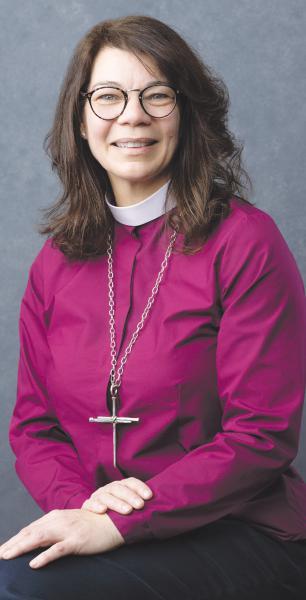
This verse encapsulates the essence of hope, offering a divine assurance despite current hardships. This is the verse that is driving the vision for the Diocese of Qu’Appelle right now.
The context of this verse is critical; it was delivered to the Israelites during their exile in Babylon, a period of deep despair and uncertainty, not unlike how we may feel today. Through the prophet Jeremiah, God conveyed
a message of hope, promising a future that ensured not just their survival but their flourishing.
This assurance was not just a fleeting promise but a steadfast commitment from the divine, reminding the Israelites that their current suffering was temporary and that God had a plan for their ultimate good.
In today’s world, many people face personal adversities that can feel overwhelming — be it health issues, financial difficulties, or relationship struggles. Jeremiah, and many other biblical promises, serve as beacons of hope, reminding us that current circumstances do not define the future — God does.
This verse encourages us to trust in a greater plan, even when we cannot see the immediate
outcome. It fosters resilience, urging us to persevere through hardships with the belief that better days are ahead.
On a broader scale, Jeremiah 29:11 speaks to the collective challenges we face as a diocesan community. Declining numbers, limited resources, aging congregations, all present themselves as a tale of doom for our congregations and parishes.
Looking even wider to global issues such as climate change, social injustices, and political unrest can create a sense of despair and hopelessness.
However, we are reminded again and again that there is a higher plan at work, encouraging us to work together towards a future of prosperity and peace.
A hopeful future for this diocese inspires collective action and resilience. It can motivate communities to come together to address these challenges, fostering a sense of unity and purpose. This hope is not passive but active, compelling us to engage in meaningful actions to bring about positive change.
When we work together through acts of kindness and showing Christ’s compassion to those on the margins of our society, we reflect the belief in a better future to those around us.
These everyday actions, rooted in hope and faith, create ripples of
positivity that extend far beyond the immediate moment. They build stronger, more resilient communities, reinforcing the idea that we are all part of God’s larger plan. By supporting each other and fostering a sense of unity, we embody the essence of the Trinity by demonstrating mutual support, mutual love, and mutual purpose.
One of the programs the Diocese of Qu’Appelle has recently supported is the PWRDF Grow Hope initiative. Together with the Canadian Foodgrains Bank, PWRDF and the Diocese of Qu’Appelle are very enthusiastic in offering a unique possibility to our farmers and our congregations to help feed the hungry Third World from the abundance God has given us.
Our website can tell you much more about that exciting project and ways in which you can get involved.
Growing hope in this diocese is not simply something that we do in the fields, it happens in our hearts, through our faith, and is demonstrated through our actions. Together we can embody the hope promised in Jeremiah 29:11. As we navigate the complexities of modern life, this hope sustains us, guiding us toward a future filled with prosperity, peace, and the fulfillment of God’s promises. For more about Grow Hope Saskatchewan, see page 22.
By Mary Brown
TURTLEFORD (Skwn)
— The Rev. Canon Don Skinner’s first position as an Anglican minister was in the Diocese of Saskatchewan at Turtleford 38 years ago.
At the end of June, he retired from his first parish and moved with his wife Catherine to Camrose, Alta., where two of their four children live. Their daughter Sarah and son Jonathon and his wife and three children live in Camrose. Michael and his wife and four children live in Victoria with Ian and his wife and three girls living in Dawson Creek.
On June 9, there was a service celebrating the ministry of Don and Catherine Skinner. Archdeacon Andy Hoskin, who was invited to take part, told the congregation that he and Don met over 50 years ago in the ’70s as undergrads at the
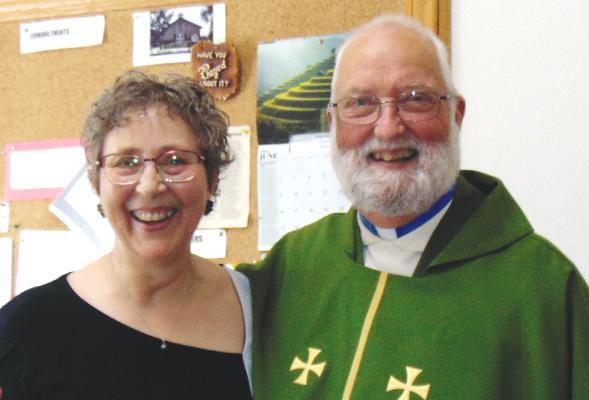
In St. Paul’s letter, it is because of the firm foundation we have in Jesus that we speak out and declare our beliefs and demonstrate them in actions. Love is to be acted.
Hoskin had two pieces of advice: 1) Do not lose heart; continue to walk with Jesus and grow spiritually; 2) Fix your eyes not on what is seen but what is unseen — focus on Jesus and God ,on eternity and heaven.
heart and spirit and mind to God’s continued call on your lives. He said may God’s grace always be upon you.
It was a lovely service with a full church and musicians playing keyboard and guitar to accompany the choir.
Rev. Don Skinner is retiring after 38 years and he and wife Catherine are moving to Alberta to be closer to family.
University of Alberta, where they gathered every Sunday night for fellowship and neither of them were considering joining the ministry.
The readings for the third Sunday of Pentecost were 1 Samuel 8:4-20, 2 Corinthians 4:13-5:1 and the Gospel Mark 3:20-35. In Samuel they wanted someone visible — faithlessness is what
Photo by Mary Brown
happens when we fail to listen to God. Those who do God's will are His family.
Don and Catherine have done the will of God in the last 30 years ministering to Glaslyn, Meota, Livelong, Mildred, Mervyn, Spruce Lake, and Turtleford. They are part of the family of Jesus because they are doing the will of God.
To the parish: “You have lots of changes coming so don’t lose heart.”
Hoskin told the Skinners that he was sorry but retirement doesn’t mean God is done with you. You cannot coast; retirement means change and transition and God is not finished with you yet.
As we know, the Christian life is an adventure of following Jesus, doing His will, new postings and opportunities. You should continue to be open in
Pastor Dan Gies, from the Four Square Gospel Church in Turtle Lake thanked Don for the 33 years they have shared in ministry, for his integrity in the gold fish bowl of ministry in raising their children. He especially appreciated Don’s humour.
A parish rep thanked Don for over 5,000 services over the years, saying they will all miss them.
Before the potluck, Don and Catherine said they were blessed to be in the diocese and grateful for the clergy fellowship. He expressed his gratitude for all God has done for them through his congregation and the love they have received.
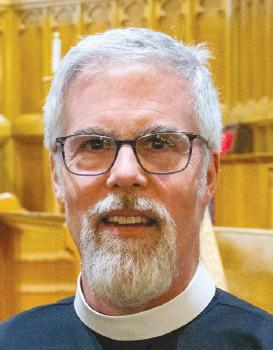
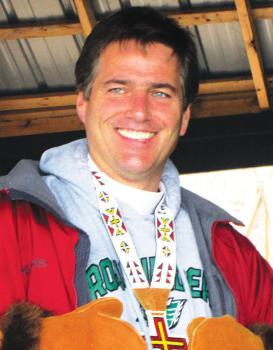
g Everyone is invited to the Consecration and Installation of the Rev. Richard Reed (pictured far left) as the 13th Bishop of the Diocese of Saskatchewan on Friday, Sept, 6 at 6 p.m. at the Cathedral of St. Alban the Martyr.
g On Aug. 15 Bishop Michael (pictured left) and Kathy Hawkins moved to Lethbridge, Alta. They sold their house in Prince Albert and have purchased
a home in Lethbridge where their daughter Allie and her husband and their grandson live. Their son Matthew lives in Saskatoon and is soon to become a father. We wish them all the best in the future.
g The Diocesan Archives is looking for volunteers who could spare a few hours a week to help with preserving diocesan info. Please call 306-763-2455 for more information.

g Saskatchewan Anglican online! Did you know you can read current and past issues of the Sask. Anglican online? Visit www. anglicandiocesesaskatoon. com/saskanglican or on Facebook at www.facebook.com/ saskatchewananglican
g Licentiate in Theology Courses offered by College of Emmanuel and St. Chad and Western Education Collaborative Anglican Network (W.E.C.A.N.): Emmanuel and St. Chad College has been working with the WECAN group to develop a ministry preparation program relevant to the various Anglican contexts in Western Canada.
The local diocesan ministry schools make substantial contributions to the program by offering courses mapped out in the ESC-WECAN Licentiate in Theology handbook.
Whether you are feeling called to do more formal ministry or are drawn to taking certain courses, please contact the person named for the course or courses you are interested in doing.
At the same time, let your diocesan school co-ordinator know your plans. If interested, please review the detailed list of fall and winter course located
elsewhere in this issue.
g Saskatchewan Theological Union Courses for 20242025 : The Saskatoon Theological Union has announced the list of course offerings for the coming fall and winter. These course offerings are too extensive to be listed here but information on these may be obtained from Colleen Walker, STU registrar, 1121 College Dr., Saskatoon, S7N 0W3, 639-6381510, colleen.walker@ saskatoontheological union.ca.
g Mentors and Instructors Needed for Em & St. Chad and WECAN Licentiate in Theology : Mentors and instructors for the students of our diocese enrolled in the Emmanuel and St. Chad College and the Western Education Collaborative Anglican Network's Licentiate in Theology.
For your information, a student may be in the L.Th. program for three to five years, depending on their life context and other responsibilities in their lives.
To maintain some continuity, we would like mentors to consider being in this role for two years. Longer would be appreciated and acceptable.
Retired clergy would be warmly welcome to serve as mentors as well as being willing to participate in the
mentor Orientation. Mentors do not need to be clergy or even incumbent clergy.
People with teaching experience, who are respected members in their faith community with a knowledge base relevant to the one of 12 courses required in the L.Th. could serve as instructors.
If interested in being either an instructor or mentor, or both, please contact the Rev. Dr. Trish McCarthy at trish. mccarthy@saskatoon theologicalunion.ca.
g Saskatchewan Anglican receives awards : At this year’s Canadian Christian Communicators Association awards gala it was announced that the Saskatchewan Anglican was one of the top three Christian newspapers in the country and was tied for first place with the New Brunswick Anglican.
The awards the paper received included Feature Series, 3rd place, Joanne ShurvinMartin; Opinion Piece, 3rd place, Rev. Brody Albers; Column, 1st place, the Rev. Gene Packwood; Biographical Profile, 3rd place, Joanne Shurvin-Martin; Photo, 3rd place, Derwin Crozier Smith; tie for 1st place for front page, Jason Antonio, Saskatchewan Anglican, and Gisele McKnight, NB Anglican; Feature Layout and Design, 3rd place, Jason Antonio;
General Excellence, 2nd place, Jason Antonio. Congratulations to all of those winning recognition.
Upcoming services and weekly or monthly events:
g The Painting Table: All are welcome at the “Painting Table” held in the lower parish hall at Emmanuel Anglican Parish, 607 Dufferin Ave., from 7 to 8:30 p.m., the first Wednesday of each month. All art materials are supplied.
g Christ Church Anglican, Saskatoon: BAS Evening Prayer, every Thursday at 7 p.m.; Free community supper, 5 to 7 p.m., the third Tuesday of each month; Community Coffee House, every Wednesday, 10 a.m. to noon; Nutflakes Videos, Fridays and Saturdays from 11 a.m. to 2 p.m.; Men’s breakfast the first Sunday of each month, a free breakfast by the men of the parish, 9:30 to 10:30 a.m.
g It Is OK TO Talk Here, a Men’s Group : Christ Church Anglican, Saskatoon started a monthly men’s support group in April as a way for guys to get together to connect and support each other in healthy ways as we navigate the issues we face in this present time.
In a nutshell, too often, men still expect
themselves to resolve faced issues alone, with little to no outside help or resources, and all too often scant family, friend, or community support.
Please see the poster elsewhere in this issue for more information and/or to contact the organizers.
g Courses at the Refinery : The Refinery at Emmanuel Anglican Parish, Saskatoon is offering a series of courses during the Winter 2024 season on a variety of subjects including painting and various other art media, Zumba, and various spiritual and meditative modalities.
For more information or to register, please contact the Refinery at: www. emmanuelrefinery.org or 306 653-3549.
g To be included in a timely manner, brief notices should be supplied to the associate editor by fax, email or “snail mail” by the end of the month, one month before the month in which the insertion is desired (i.e. February entries will be in the April issue).
Detailed and longer texts of upcoming events will not be included in this section, but should space allow, could be the subject of articles and notices elsewhere in the Saskatchewan Anglican.
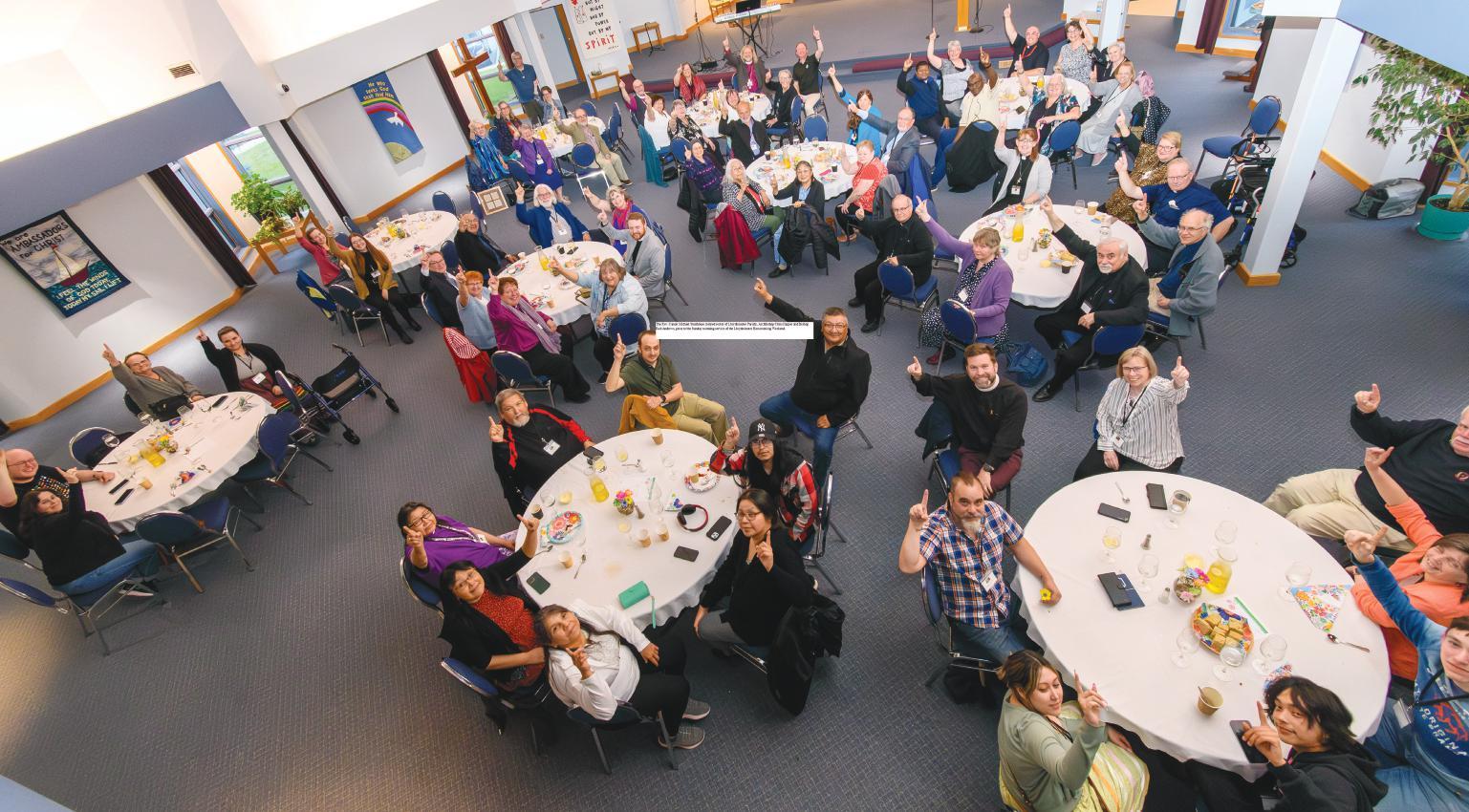
A bird’s eye view of all the delegates to Provincial Synod, held in Calgary in May, at which the new name of the ecclesiastical province was adopted, becoming the Province of the Northern Lights.
Continued from page 1 came to discuss the proposed name change for the Ecclesiastical Province of Rupert’s Land, the conversation became lively and enthusiastic. We listened intently to our First Nations delegates, and their views about why a name change would be appropriate for the Synod to consider.
The idea of a name change for our province was first discussed at the Synod in 2022 held in Prince Albert. At that time the delegates felt that the change would promote reconciliation within the Church.
It was also believed that the diversity of the province would be better reflected by a name that encompasses the territories of all of the dioceses. Several suggestions for a new name were submitted for consideration, but in the end, “The Province of the Northern Lights” was approved unanimously, and with much celebration by the Synod.
As of June 1, we will be known by our new name for common usage. It will take some time before the legal name change is recognized as the chancellors will need time to ensure that the change occurs on government and
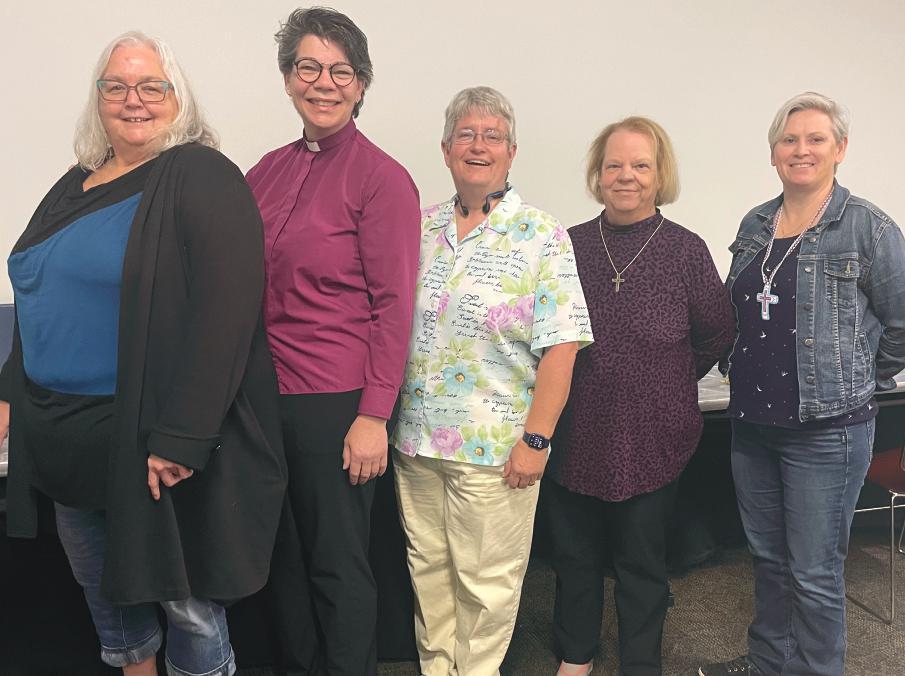
Diocese of Qu’Appelle’s delegates to Provincial Synod were (l-r) Linda Kapasky, Bishop Helen Kennedy, Wendy Godfrey, Canon Susan Page and Rev. Tracey Taylor. Photo courtesy Wendy Godfrey
official church documents.
A new logo will be designed for the province to reflect the northern lights. Delegates were encouraged to submit photographs they had taken this spring when the northern lights were particularly prominent in Canada.
Many of the leaders in our church spoke to us about our faith, about
truth and reconciliation, and about the future of the Anglican Church of Canada.
We heard from Bishop Lucy Nester of the Diocese of the Arctic; Archbishop Gregory Kerr-Wilson of Calgary; Archbishop Christopher Harper, our National Indigenous Archbishop; and our Primate, Archbishop Linda Nicholls.
All were enriching and inspiring and gave the assembly much to consider.
As in every gathering of Synod, there were elections of officers including executive council, the provincial panel, provincial court, prolocutor and deputy prolocutor, and the committee on constitutions and canons.
From the Diocese of Qu’Appelle, Rev. Tracey Taylor was elected to the position of deputy prolocutor, and Wendy Hodges was elected to executive council.
On the final evening of the Synod, we were treated to a banquet hosted by the congregation of the church in Okotoks.
The roast beef was delicious and the entertainment was outstanding.
At the banquet, Archbishop Kerr-Wilson formally welcomed the Primate, and gave thanks as her ministry amongst us is coming to an end as she retires from the position.
After the closing worship and the first meeting of elected committees on Saturday morning, it was time to leave Calgary.
Unfortunately for our group, the van would not start!
We changed the battery in the fob to start the car — no luck. Thankfully we got a boost for the van’s battery and we were on our way.
We were thankful for all we had learned at the 51st Synod, and glad to be heading for home, having enjoyed our time with our Anglican colleagues and with one another.
By Joanne ShurvinMartin
VERNON (Qu’A) — Bruce Farrer of St. Thomas, Vernon, was featured in a 90-minute documentary filmed locally and near Banff last summer.
The film, in English with Spanish subtitles, featured an assignment Farrer gave students during his teaching career of more than 47 years. He had Grade 9 students write a 10-page letter to themselves, which would be delivered to them in 20 years.
Farrer has sent about 1,500 letters to date, and is nearly finished the project.
He explains that a few students asked for their letters to be delivered in 30 years, and a few students from other schools who heard about the project have more recently given Farrer letters to be delivered in the future.
Farrer and his wife, Cathy, were invited to attend the premier of El Metode Farrer (The Farrer
"El Mètode Farrer" wins top prize in film festival
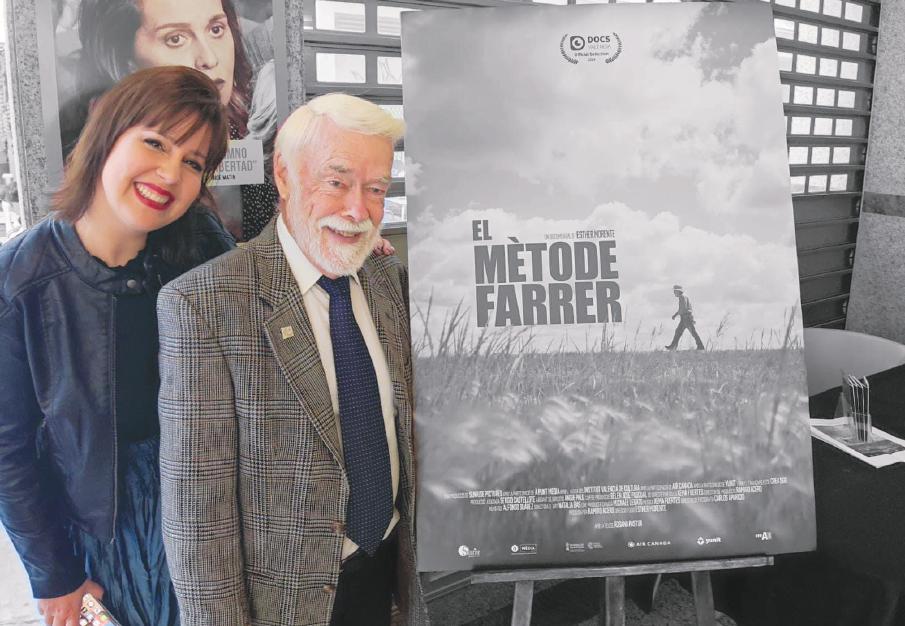
Method) on the opening night of a film festival in Valencia, Spain, in May.
The couple were treated to an all-expense-paid trip to Spain to attend the premier.
In their six days in Spain they enjoyed meals
in sidewalk cafes, the historic area of Valencia, and the sandy beaches of the Mediterranean Sea. Bruce mentioned that although most of the people on the beach in early May did not go into the water, the Canadian
couple did not find the water very cold.
Farrer participated in some radio and television interviews and gave one speech, most of it in English, though he can speak some Spanish.
El Metode Farrer was
written and directed by Esther Morente, a Spanish actress and writer, and produced by Ramiro Acero, of Sunrise Pictures.
In the summer of 2023, the Spanish film crew filmed in and around Fort Qu’Appelle and interviewed teachers and former students from Bert Fox Composite School, in Fort Qu’Appelle.
Some filming was done near Banff, interviewing former students currently living in Calgary.
The impressive Canadian scenery and innovative filming techniques drew attention in Spain. At the conclusion of the 10-day film festival, the documentary was awarded first place by the festival jury.
El Metode Farrer has been shown in other European film festivals and will be shown in Mexico this fall.
Farrer says there are hopes it will eventually be broadcast in Canada, but that will depend on North American networks’ interest.
By the Rev. Canon Dr. Trish McCarthy
SASKATOON — Greetings friends, I had a spiritually enriching time with the Oji-Cree people and their Bishop Lydia Mamakwa of Mishamikoweesh Diocese/Spiritual Ministry in northwestern Ontario as they gathered at the Kingfisher Lake community for their summer conference.
There was a diverse set of activities offered to the people. I taught the first half of two courses, from July 2 to 10, pastoral care and spiritual formation, and enjoyed the company of people I already knew from 2010 and also made new friends.
Students who signed up for these two courses will complete the second half of the two courses through the Zoom interactive online platform. Emmanuel and St. Chad College, with whom I teach, along with the Western Educational Collaborative Anglican Network (W.E.C.A.N), has set up a Licentiate in Theology program that

can be accessed online and within the students’ own dioceses with local and offsite instructors.
I personally co-ordinate the program and it is exciting to see how we can broach broad horizons and allow people to acquire
theological training from within their own context and become competent theologians themselves as well as learn practical ministry skills.
I have learned more about the Indian Residential School
(IRS) experience and its damaging ripple effects.
One example is that some very gifted candidates for studying in the Licentiate have to fit their studies into their already busy schedules or have to
delay their engagement in the program because they are raising their grandchildren. As three grandmothers have said to me, they are starting that stage of their lives “all over again.”
The intergenerational effects of the IRS are far-reaching, and this is one example. The actual parents of some of these FN children are elsewhere, perhaps going to where they can get work such as working on an oil rig in the bush or nursing in Thunder Bay.
Yet some parents of young children may also be in recovery because of the IRS experience as it reverberates through the generations.
Each day we had more and more people arrive to take in the multi-faceted programs for the 10 days. Between Bishop Lydia and I, we probably printed up 30 copies of the course handouts.
Wasaya Airlines, flying north in several directions out of Thunder Bay, uses two-propeller planes that are unofficially called Continued next page
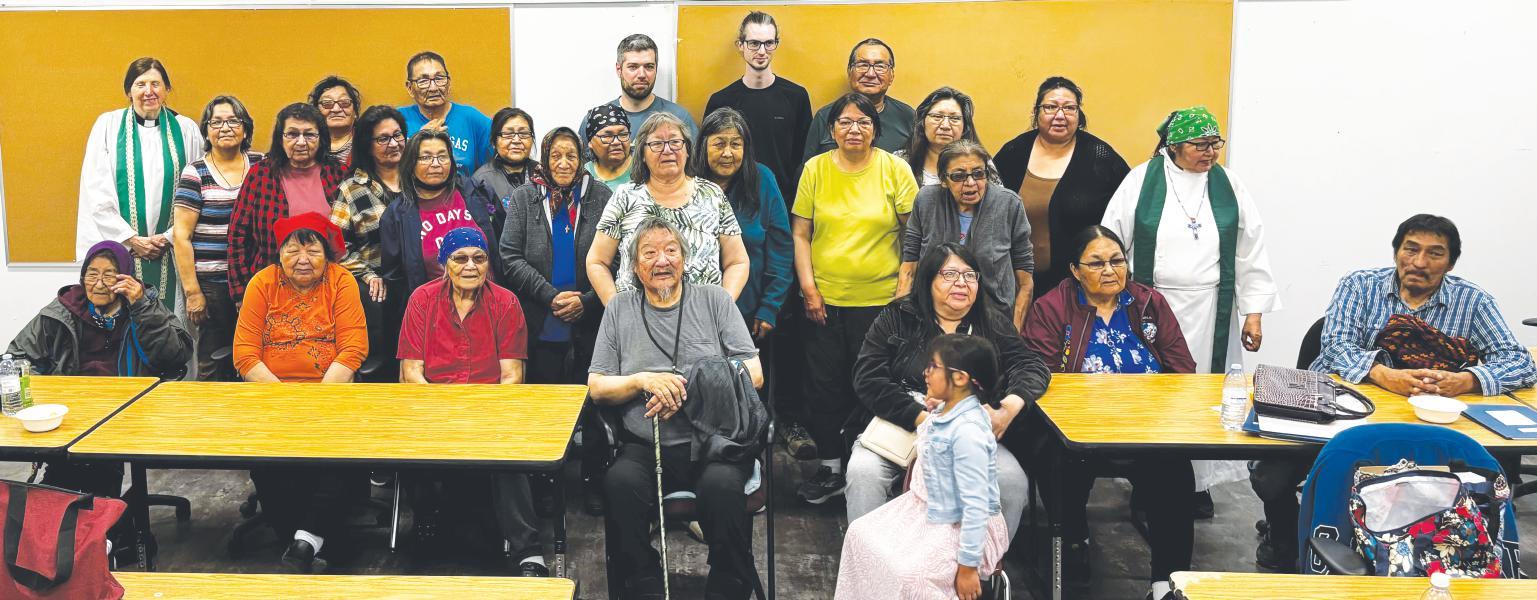
Continued from page 6 “culverts,” perhaps for obvious reasons. The airline also operates other larger planes with four seats astride.
The Kingfisher people live next to pristine nature and clearly learn from God’s masterpieces.
We held the conference in a former elementary school where the KFL community lives, that has some current technological equipment installed.
What a pleasure this was. I could use my PowerPoint presentations.
Present in the KFL community, for shorter- and longer-term
commitments, are several staff members of the Wycliffe Bible Translators as well as some younger Mennonite people doing ministry with the children.
The four translation staff people, two nonFirst Nation and two Oji-Cree folks, work together to improve the Bible translations from the past with some high-tech programs in order to render the Gospels and the Epistles into culturallysensitive terminology. In my presence, after a particular and recent rendering of a biblical text, some Oji-Cree
people would exclaim: “Beautiful!”
When one of several black fly bites started to develop infection, I went to the health-care centre where, at this time of year, there are two doctors sharing rotation covering all five days of the work week. It is a bright and fairly new health care centre.
On several vehicle tours of the community, I saw about ten brand new “teacherages” just being completed and a brandnew beautiful school that is located just outside of the developed area of town.
While these new
developments do improve the health care and education of long-term residents of the Kingfisher Lake community, there are still signs of various social challenges that I believe can be traced back to what was damaging in the IRS experience.
It has to be said that, during my times in the Spiritual Ministry of Mishamikoweesh, in both summers of 2010 and 2024, there are signs of some wonderful and wholesome ministry happening.
This also contributes to the ongoing healing journey and well being of the Oji-Cree people in the wider area of the Diocese
or Spiritual Ministry of Mishamikoweesh.
Each day during the conference, another member of the wider Mishamikoweesh Spiritual Ministry team, priests as well as lay readers, would lead Morning and Evening Prayer as well as Bible study sessions, patterned on the well-known GospelBased Discipleship.
I witnessed a longing for and a deep abiding in God in the KFL community and I am always thankful to have spent time with Bishop Lydia and the people of Mishamikoweesh.
What a blessing.
By Rev. Christine M. Burton
The Bible has been re-translated and edited many times to make it more accessible to the people of God, but the truths it contains remain unchanging.
The stewardship section of the Diocese of Qu’Appelle website also contains many useful articles, videos, webinars, presentations, links, and other resources but, unlike the Bible, it has not been reworked recently to make it super accessible.
With the users' needs in mind, the Qu’Appelle ad hoc stewardship committee undertook
changes to the stewardship elements of the website.
Key amongst the changes was the addition of a specific “Stewardship Works!” tab right on the top line — no more searching in Giving or Resources for the single link to stewardship information, although if you happen to be in those sections, there are crosswalk links, so you don’t have to go back out.
This is commonly known as “no wrong door” versus the “single door” approach that was common 20 years ago.
While it was mostly happenstance, the committee also likes to think it was the work of
the Holy Spirit that the new tab is right in the middle of the top search bar … since faithful stewardship of Creation, self, and our individual and collective resources is central to living God’s word.
With the assistance of the diocesan webmaster, Luke Johnson, within the tab we have made it searchable by keyword to find resources linked to stewardship topics.
We have also identified a number of key themes. Not surprisingly, Creation and fostering generosity in children are there, along with the traditional stewardship elements of time, talent, and treasure,
and lots of others.
While we have put the most recent stewardship resources at the top, amongst the timeless truths about stewardship is that it has been a part of our tradition and faith since even before Jesus.
Many Jewish “kashrut/ kosher” laws were about proper stewardship of animals and resources. We are therefore also doing a review of some older stewardship materials that recently came into our hands, so we can avoid reinventing the wheel if something has already been prepared.
Give the new section a look and try a few searches — and if your search term
isn’t there, let us know; it may be that there hasn’t been anything done on the topic — and so maybe we should do something! Or it may be a term to include. This site is a work in progress — perhaps not perfectly evergreen, but we’re trying to reduce the amount of “brownout!”
And if your parish needs help trying a stewardship initiative, or if you’re interested in supporting the committee, reach out to Rev. Christine Burton, Rev. Susan Anholt, or Deacon Arleen Champion. We’d love to talk to you!
Take a look at https:// quappelle.anglican.ca/ stewardship
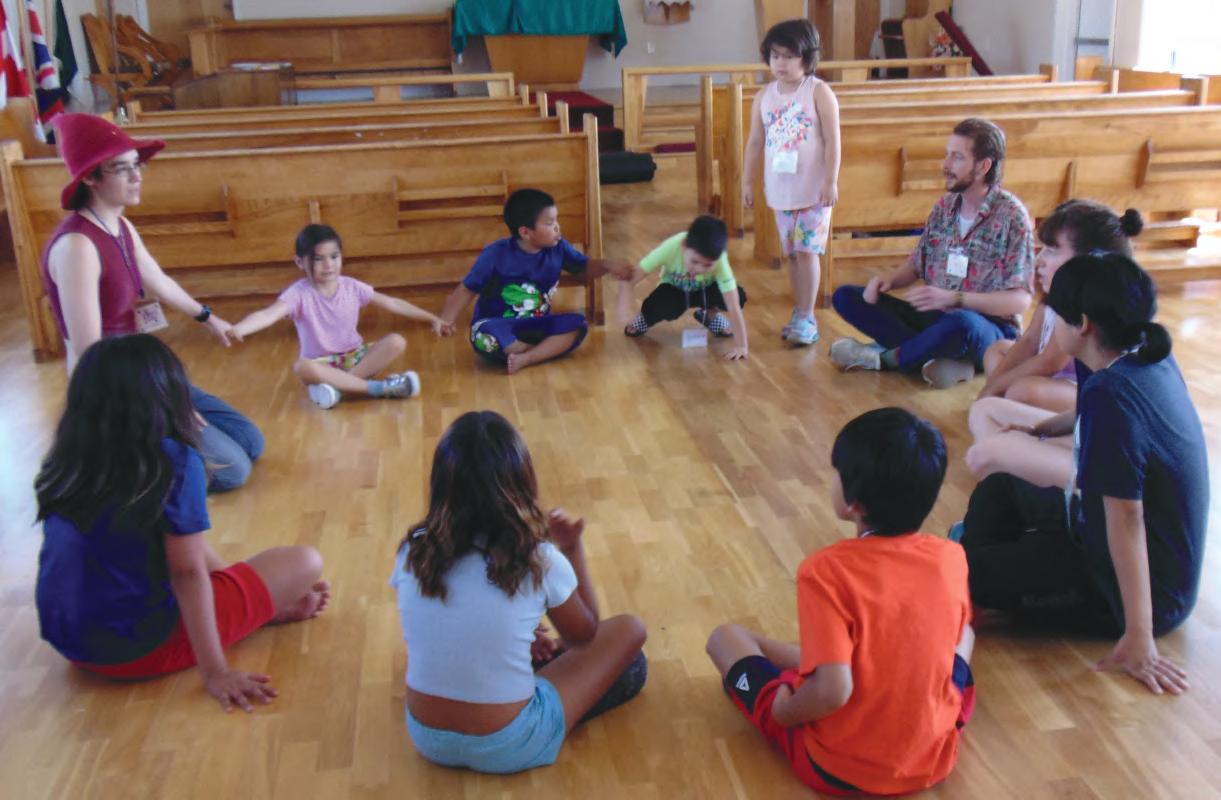

By Mary Brown
PRINCE ALBERT — In November 2023 four students visited the Diocese of Saskatchewan from King’s College in Halifax, and this past June, Jonah Folkman (from Boston) and Viviane Kirby (from Ontario) came back to lead the diocese’s annual Vacation Bible School sessions.
Cameron Lowe (from Bridgewater), who was here five years ago, also
came with Earl Gertier (from Ontario) and Anil Pinto Gfoerer (from Winnipeg), all from King’s College.
Their first week was spent at St. George’s, Prince Albert, and then to St. James Muskoday, Holy Trinity in Prince Albert, St. Mary’s Birch Hills, St. Stephen’s/St. Luke’s, James Smith, Holy Trinity, Stanley Mission, and the Church of Good Shepherd, Cumberland House. Their home base was
Fr. Jordan Draper’s home in Birch Hills. The Revs. Jordan Draper and Brody Albers organized trips to the Stanley Mission Gathering, Muskoday powwow and visits to summer churches.
The theme for the VBS this summer was the Ten Commandments.
The students arrived at 11 a.m., 11:15 circle time, 11:30 Morning Prayer, 11:50 circle time, 12:20 p.m. lunch, 1 crafts and games, 1:30 lesson of the day, 2:10
circle time, 2:30 closing circle, and 3 pick-up.
The day I visited St. James, Muskoday, the instructors put on a skit about the Good Samaritan with input from the kids.
They played the part of the robbers attacking the man at the side of the road with pool noodles. I noticed this little skit held the attention of the group while teaching them a lesson on charity.
On the wall was a poster with the camp covenant:
• Don’t hurt each other (with our words or actions)
• Share with each other
• Listen to one another
• Respect People (their space and things)
• Tell leaders where you are and HAVE FUN
By the smiles on their faces the instructors and kids did have fun.
By Canon Claude Schroeder
REGINA — During the Cathedral Village Arts Festival Outreach, St. Mary’s hosted an evening entitled “Songs of Joy, Stories of Hope.”
The audience sang five hymns, and heard five short evangelist addresses by Rev. Canon Claude Schroeder, which highlighted the life story of the hymn writer, and the circumstances of the writing of the hymn.
The addresses showed how the Gospel of Jesus Christ “takes on flesh” in the pain and suffering of human life, bearing spiritual fruit to this day.
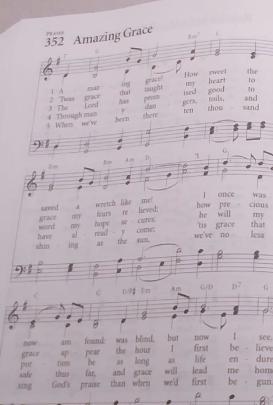
In his introduction, Canon Schroeder explained the connection between the title of the
evening, “Songs of Joy, Stories of Hope” and the theme of the festival, “Celebrating Creativity from the Ground Up.”
Writing hymns and setting them to music is creative endeavour, and the ground from which this creativity springs up is the universal human experience of spiritual struggle, affliction, pain, suffering and death as revealed in the life story of the human writers.
How did these hymn writers overcome the experience of the negativity of human life? Through their union and faith in Jesus Christ, and the experience of His presence in the difficulties
of life. Their stories are stories of hope for us all.
The Cathedral Village Arts Festival ran May 20 through 25 in Regina’s Cathedral neighbourhood, near Holy Rosary Cathedral.
The program for Songs of Joy, Stories of Hope centred on singing Let All the World in Every Corner Sing (Common Praise #357); King of Glory, King of Peace (CP #345) by George Herbert; A Safe Stronghold our God is Still (CP #526), by Martin Luther; Amazing Grace (CP #352) by John Newton; and to finish Abide with Me (CP #24) by Henry Francis Lyte. Although these hymn
writers would all fall into the category of “dead, European, white guys,” the content of their hymns transcend sex, race, culture, and class, which perhaps explains why hundreds of years later they are still being sung in church.
The Arts Festival outreach concluded on the Saturday with a coffee house in the newly refurbished Lower Hall, which featured music for local folk artist, Glenn Sutter, and St. Mary’s parishioners, Kelsi and Terrance Williamson.
Guests were served carrot cake, trifle, and fruit bowl along with their beverage of choice.
By Rev. Gene Packwood

s I’ve written here before, in my very first column in fact, I’d love to see ordinary Anglican people speaking and praying in tongues, just like in the Bible, with surprised looks on their faces.
In the meantime, while we await that blessing, Anglican Renewal Ministries (ARM) Canada continues to be committed to the Anglican Prayer Book tradition of prayer, both private and corporate. We believe that our prayer books keep us on track and ensure that all the important devotional bases are covered.
Holy Spirit-filled people, even introverted Anglicans, faithfully and systematically praying the words in Holy Spiritfilled and inspired prayer books, cannot help but be a powerful, spiritual force with which be reckoned. They are The Church of Jesus Christ at prayer.
Consider, for example, two components of these brilliant Anglican daily devotions. First, the Te Deum Laudamus in The Order for Morning Prayer Daily Throughout the Year
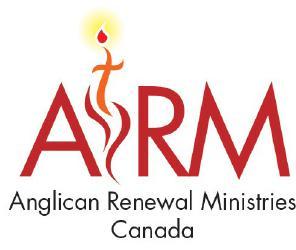
in the Book of Common Prayer : The holy Church throughout all the world doth acknowledge thee, The Father, of an infinite Majesty; Thine honourable, true, and only Son; Also the Holy Ghost, the Comforter (BCP, p8).
Not Scripture, but inspired nonetheless; sound Trinitarian worship in prose from the fourth century, reminding us of how Jesus described the Holy Spirit as Comforter (John 14:16, KJV, rendered as Advocate, Counsellor or Helper in later translations).
This is “The One” who, in the words of poet Gerald Manley Hopkins, “over the bent / World broods with warm breast and with ah! bright wings.” (God’s Grandeur)
A.B. Simpson, Canadian preacher, author and founder of the Christian and Missionary Alliance, described the Holy Spirit as the “mother heart of God.” Jesus said, “I will not leave you as orphans, I will come to you” (John
14:18). Every morning, Te Deum Laudamus reminds us that He didn’t and He has. Second, the Apostle’s Creed (BCP, pp 10 and 22) is a statement of faith which states and repeats two key tenets of belief about the Holy Ghost/Spirit:
1) That Jesus was conceived by Him, and 2) That we believe in Him as the Third Person of the Holy and Eternal Trinity — One God.
Repeatedly praying these daily offices means that we marinate ourselves in divine truth: it comes every day, rain or shine, feeling spiritual or not, without options, for ever and ever. Amen. It anoints our hearts, souls and minds to repeat the words when we confess our faith over and over again. What we believe gets into our bones and helps our unbelief (Mark 9:24).
Can it be monotonous? Yes, but monotony has benefits. G.K. Chesterton, explains: Children have abounding vitality… they are in spirit fierce and free, therefore they want things repeated and unchanged. They always say, “Do it again”; and the Continued on page 11

By staff
REGINA
— The Saskatchewan Anglican won eight awards at this past spring’s Canadian Christian Communicators Association’s annual banquet, the most awards the paper has won since first entering more than a decade ago.
The awards included first place for opinion columns by Rev. Gene Packwood, a first-place tie with the New Brunswick Anglican for the front page, second place for general excellence, third place for a feature series by Joanne ShurvinMartin, third place for an opinion column by Rev. Brody Albers, third place for a biographical profile by Joanne ShurvinMartin, third place for a photo by Derwyn CrozierSmith, and third place for feature layout and design by Jason G. Antonio.
For the opinion columns, the judge said that in all three columns, Packwood stressed the importance of daily prayer, Bible reading and infilling of the Holy Spirit.
In “Roll Away the Stone,” Packwood likened the burial stones of Jesus and Lazarus to the sins and failures of people’s lives which, when rolled away through faith and new habits, can set people free to walk in the light of the risen Christ.
In “Decently and in Order,” he said consistency in reading the Anglican prayer book is a way to follow the Scriptural command to “pray without ceasing” and also provides a framework for doing things in orderly fashion.
In “An Anglican Charismas Story,” Packwood described the Christmas Day Collect in the BCP as “charismatic” because it reminded Christians of the need for daily renewal by the Holy Spirit.
For the front page, the judge said it was “a solid layout from top to bottom.”
For general excellence, the judge said there was “a LOT of news” in the paper, while reading through it, one got a real sense there’s a community and this paper is covering it.
Further, it seemed like every couple of pages there was something that urged the reader to stop and think “that’s interesting.”
For the feature series award, the judge said that it met the audience’s expectations, was wellwritten and had good flow.
For the biographical profile, the judge said Joanne Shurvin-Martin provided a detailed account of a man — Deacon Michael Jackson — accomplished in many fields.
“What many might view as a very formal man is leavened by the memories of those who knew Dr. the Rev. Deacon Canon Michael Jackson, revealing his kindness, friendliness, and graciousness,” the judge said.
For the opinion piece, the judge said that Albers used an illustration from his own life, which draws in readers right away. Further, he offered the hope of a relationship with Jesus as a solution to human hopelessness, where the world has nothing to offer.
“I love that you talk about the blood of Jesus and His forgiveness to alleviate our suffering. Very well done!” the judge added.
For the photo, the judge said that the lighting in the photo was “a bit eerie and surreal, making the photo look almost like an illustration.”
However, the size of the moon behind the foreground elements gave a sense of the effect it had on the congregation during the service.
For the feature layout and design, the judge said the feature spread offered a pleasing balance of text accompanied by a generous array of engaging photos.
As the headline suggested, the photos vividly capture the vibrant and bustling atmosphere of Camp Harding’s “exciting season.”
The photos’ strategic placement guided the reader’s gaze down the page, while the cutlines provided enough context to entice readers to delve into the story, the judge added.
By the Rev. Canon Dr. Iain Luke Principal, College of Emmanuel & St. Chad
One of the most exciting things about my job is the opportunity it presents to learn about where the church is going. Yes, you read that right: “to learn,” not “to teach.”
Though, in fact, the two aren’t that far apart. In order to teach, you have to learn, because the discovery of ideas happens in a community of learning, where everyone participates.
When it comes to the future of the church, I have many sources from which to learn. The students in my classroom come with a different experience of the church than me. Some are new to
By Anne Hill
SWIFT CURRENT
(Qu'A) — On July 11, St. Stephen Church held a potluck lunch to recognize the ministry of Rev. Dr. Leonard Botchway.
Botchway served at St. Stephen’s from January to July 2024. His ministry was a wonderful gift in the community, notable for his engaging and challenging sermons and children’s talks, his active service visiting homebound parishioners, and his positivity.
Botchway continues his ministry in the Diocese of Qu’Appelle at St. Giles, Estevan.

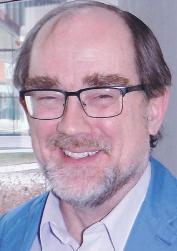
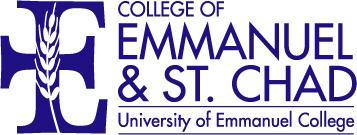
faith, or belong to other denominations, and most developed their ideas of church more recently than me.
They also share a commitment to the church’s future, which means our classroom conversations inevitably move toward imagining what that future will look like. Much of my learning also comes from colleagues in the seminary and across the church. These are people with a breadth and depth
of experience, who are concerned or excited about what they see unfolding. Whether in teaching, pastoral ministry, or church leadership, we share our perspectives and discoveries in order to see more clearly and do our work more effectively.
Sometimes all the stars align, and I begin to hear the same new thoughts, the same reflections, in many different conversations and networks.
The last year has
been one of those times. In course work, in reading, in an online discussion group, at synods and conferences, and in oneon-one encounters, a pattern is emerging that gives me at least a hint of what to expect for the church in the coming decades.
It might not seem very profound to describe this pattern in four words, “The church is changing,” but that is where it starts. Perhaps that is an important beginning. The
change people are seeing is quite different from two other stories we might try to tell: that nothing is going to change, so we just need to hold on for dear life; or that the church we know is disappearing. Change is not death. The change I mean is an evolution, or development, of what the church has been in the past. This isn’t the first time the church has gone through profound change in our 2,000 years of history.
We may not be able to apply specific lessons from past eras of change, but we can at least remember that Christianity survives, intact and authentic, even under great pressure.
The primary direction of this moment of change is away from the church as an institution. Whether Continued next page

By Kate Berringer
CYPRESS
HILLS
PROVINCIAL PARK
(Qu’A) — Let the little children come to me, and do not hinder them, for the kingdom of heaven belongs to such as these (Matthew 14:19).
Something very special happens when a group of people gathers in a faithbased camp setting. The effect of camp ministry on the faith development of participants is difficult to describe.
No matter the weather, the challenges that might be faced living in close quarters for several days, no matter the type of program that is offered, it always amazes me that Jesus is there to transform the lives of staff and campers.
It is a phenomenon to which those who have attended camp will attest. We have been blessed by God’s provision through donors, volunteers and staff to offer those opportunities at Camp Harding. We are a small but mighty camp, situated in the Cypress Hills.
This season, we have been privileged to offer a women’s weekend, a junior camp and a South Sudanese Dinka language camp.
The junior camp took place June 30 to July 5. Twenty-three staff and campers joined together
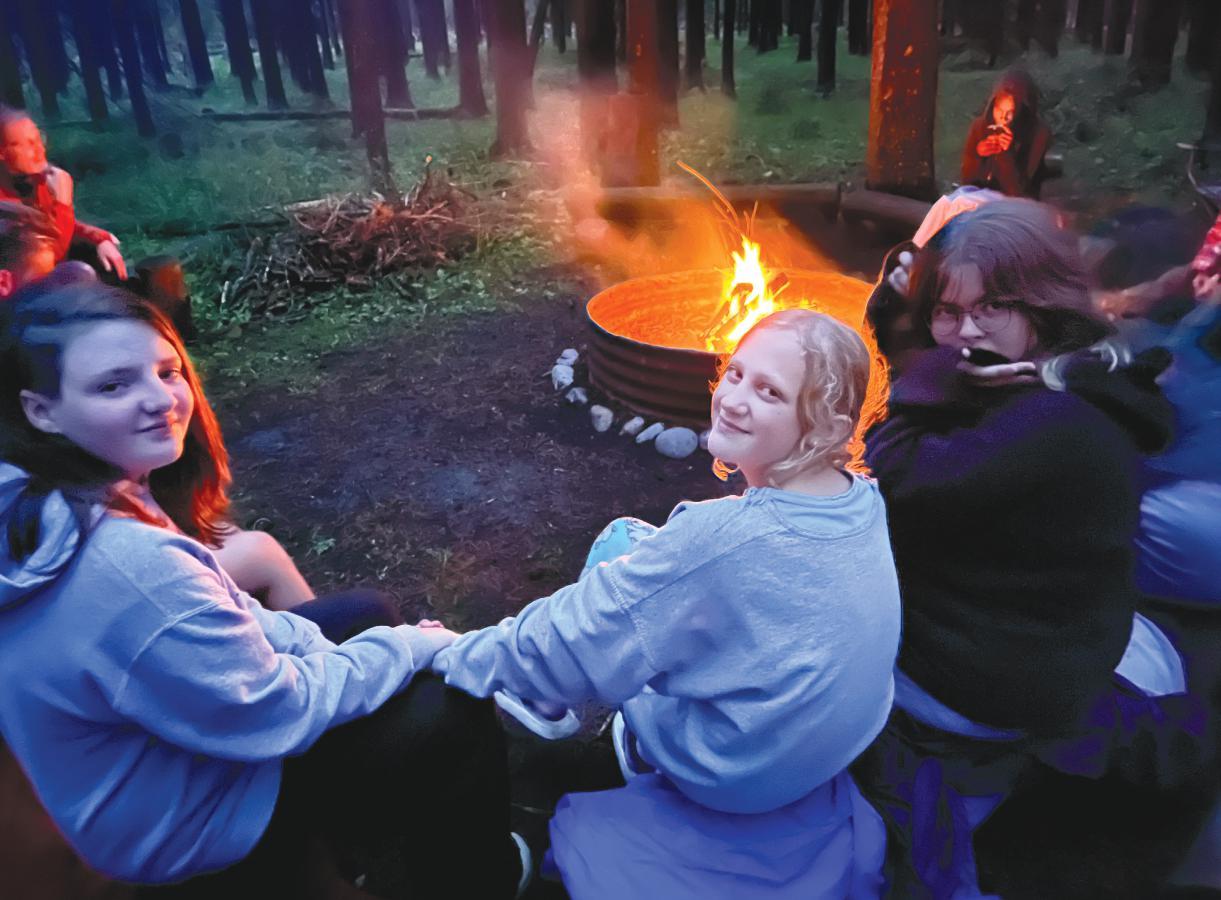
to worship, pray, learn and enjoy each other’s company. Teaching and activities centred on the theme: Shipwrecks and Sailboats: Journeys with St. Paul. We give thanks to God for His many blessings that week.
In August, we welcomed 28 children to a South
Sudanese Dinka language camp at Camp Harding where Rev. John Choul from St. Andrew’s Anglican in Calgary and Rev. Nathaniel Deng from St. Mary’s, Regina, offered Dinka language teaching and Anglican worship.
Campers also experienced Canadian
camp activities such as campfires, horseback riding, swimming and wall climbing, just to name a few.
If you wish to become a supporter, please visit our website at https:// quappelle.anglican.ca/ camp-harding to donate.
Your support means
Continued from page 10 that means top-down structures, accumulation of money and property, or a sense of belonging built on attendance and giving, it’s clear that the institutional patterns of recent history are failing. But rather than marking an end point, institutional failures show us something else is developing instead.
That something else is the emergence, or re-emergence, of the church as a body of disciples. Rather than focusing on the structure of the church, this development calls our attention to the building blocks, the people who are called together by God to follow Jesus and to live His Gospel.
When we bring disciples to the forefront of what we mean by church, the balance shifts
significantly. We start to see that the church is not just where members come together to worship. It is even more present wherever disciples put their faith into action, serving God and their neighbour.
We start to see that any one Christian, any one church member, represents the church wherever we live the Good News, and each of us — you and me — always has the whole church standing behind us.
We start to see that membership in the church isn’t only about the care and nurture we receive, but also about how we become effective witnesses to the grace of God, individually and all together.
If that is the direction of change, we may want to start adapting now, in our personal lives and in our parishes and dioceses. This will mean
creating opportunities to see ourselves as disciples who make the life of Christ visible by our actions.
We may try on that identity when we come together, put it into practice week by week, and then tell each other what we’ve learned when we come back together.
Adapting also means making a commitment to honour discipleship as the core identity of the church. We will need ways to reflect this in our worship, in our prayers for each other, in Christian education — for the home, the parish, and the college! — and in new ways of thinking about how we build and strengthen communities of disciples.
Adapting to change is a form of learning. Discipleship is, too. I look forward to learning with you.
...
you are on the front lines with us as we strive to create experiences for participants to encounter the Risen Christ in a transformative way. All donations make a difference! Thank you for your support. For more pictures from this year, see next page.
Continued from page 9 grown-up person does it again until he is nearly dead. For grownup people are not strong enough to exult in monotony. But perhaps God is strong enough to exult in monotony. It is possible that God says every morning, “Do it again” to the sun; and every evening, “Do it again” to the moon. It may not be automatic necessity that makes all daisies
alike; it may be that God makes every daisy separately, but has never grown tired of making them. It may be that He has the eternal appetite of infancy; for we have sinned and grown old, and our Father is younger than we. Just so, the offices and the liturgy, including The Te Deum Laudamus and the Creed, bear repeating. If it seems monotonous, exalt in it!





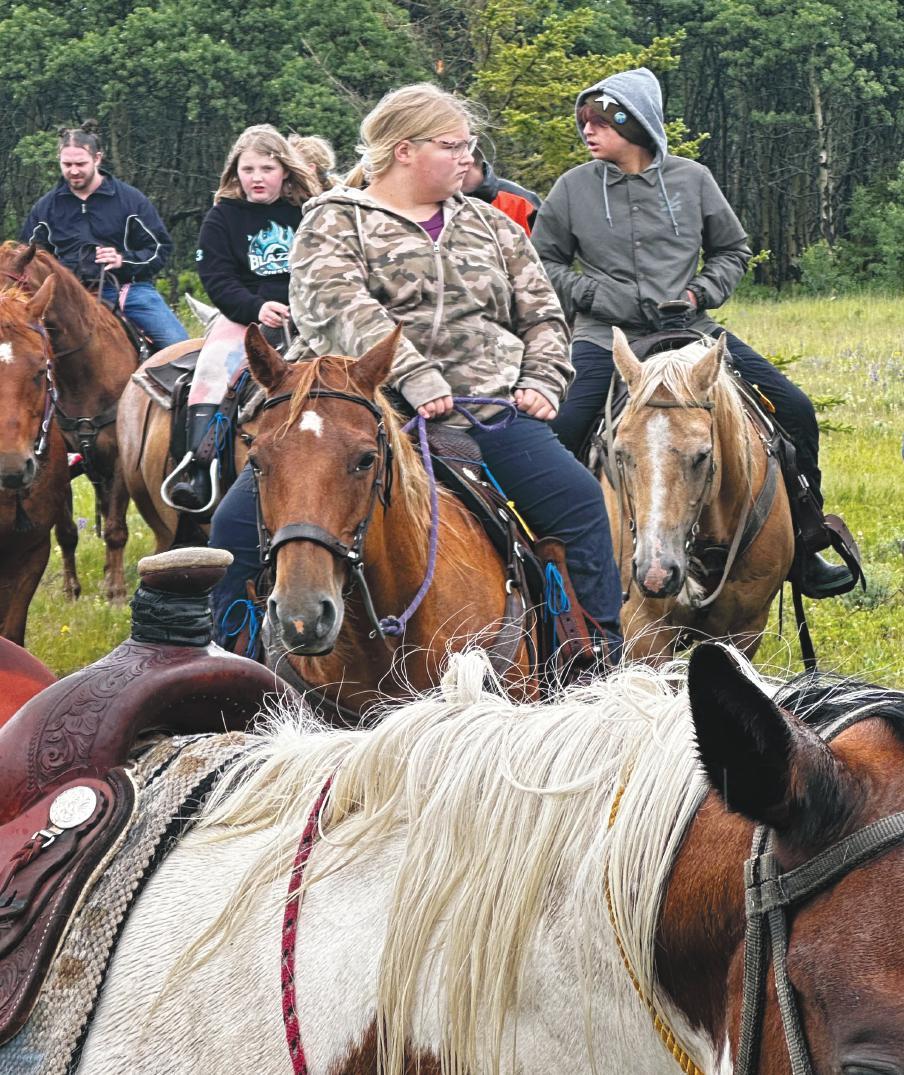


St. Stephen's, Swift Current, has welcomed its new incumbent, Rev. Shepherd Munzara. Rev. Munzara (second from right), his wife Elinah, and their children arrived in Swift Current on July 25 from Zimbabwe. Bishop Helen Kennedy (far right), Rev. Ronald Rudorwashe Shumba, and search committee members Anne Hill and Alex McPhee (far left) met the family at the airport on July 23. Rev. Shumba is also an Anglican priest who had worked with Rev. Munzara in Zimbabwe, and now works at the Lutheran church in Melville. He came to greet the family, as a familiar face. Photo courtesy Rev. Ronald Rudorwashe Shumba
By Lisa McInnis Registrar/Admin
Assistant
College of Emmanuel & St. Chad
SASKATOON — On May 10 at Knox United Church in Saskatoon, The University of Emmanuel CollegeCollege of Emmanuel & St. Chad, The Lutheran Theological Seminary and St. Andrew’s College of the United Church, celebrated the 23rd joint ecumenical convocation of the Saskatoon Theological Union.
The day started with a noon luncheon. We joined St. Andrew’s College in honouring our Honorary Degree recipient, the Right Rev. John Stephens, with his guest, his wife, Ruth. We had students, faculty, staff, and council members in attendance.
It was a memorable time of food and festivity.
The graduation eucharist was at 2 p.m. at St. Andrew’s Chapel, with the Rev. Canon Dr. Iain Luke presiding, and Dr. Adam Wright preaching.
The service included thanksgiving for the academic achievements of the students, recognized by the presentation of prizes. We also said goodbye to our long-time bookkeeper Linda Kalyn
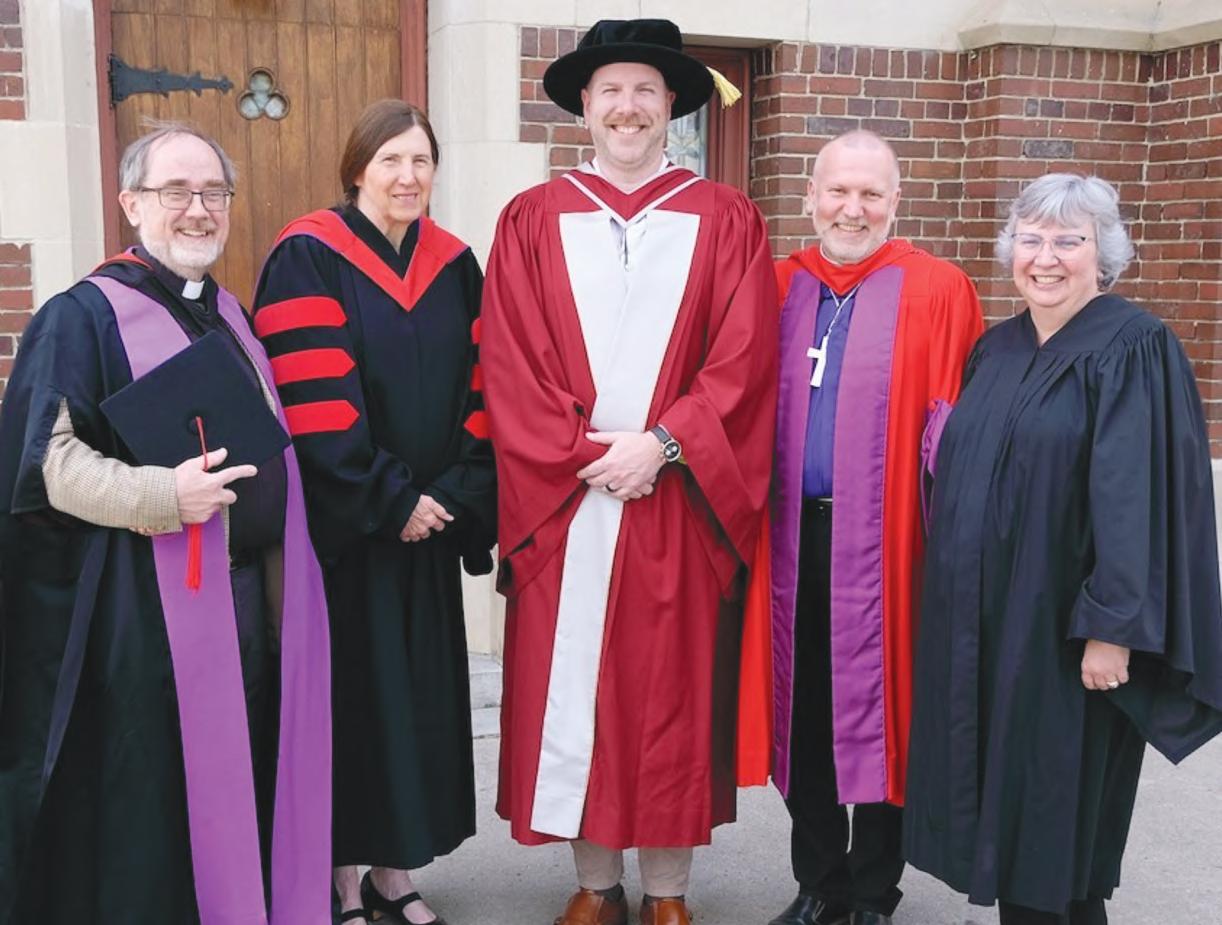
and thanked her for her years of service.
At the evening convocation, the degree of Doctor of Divinity
Thank you to all who made this convocation a success, through your attendance and support for those receiving
degrees, and to the staff of Emmanuel &
Chad and our STU partners who planned and organized the day’s events.
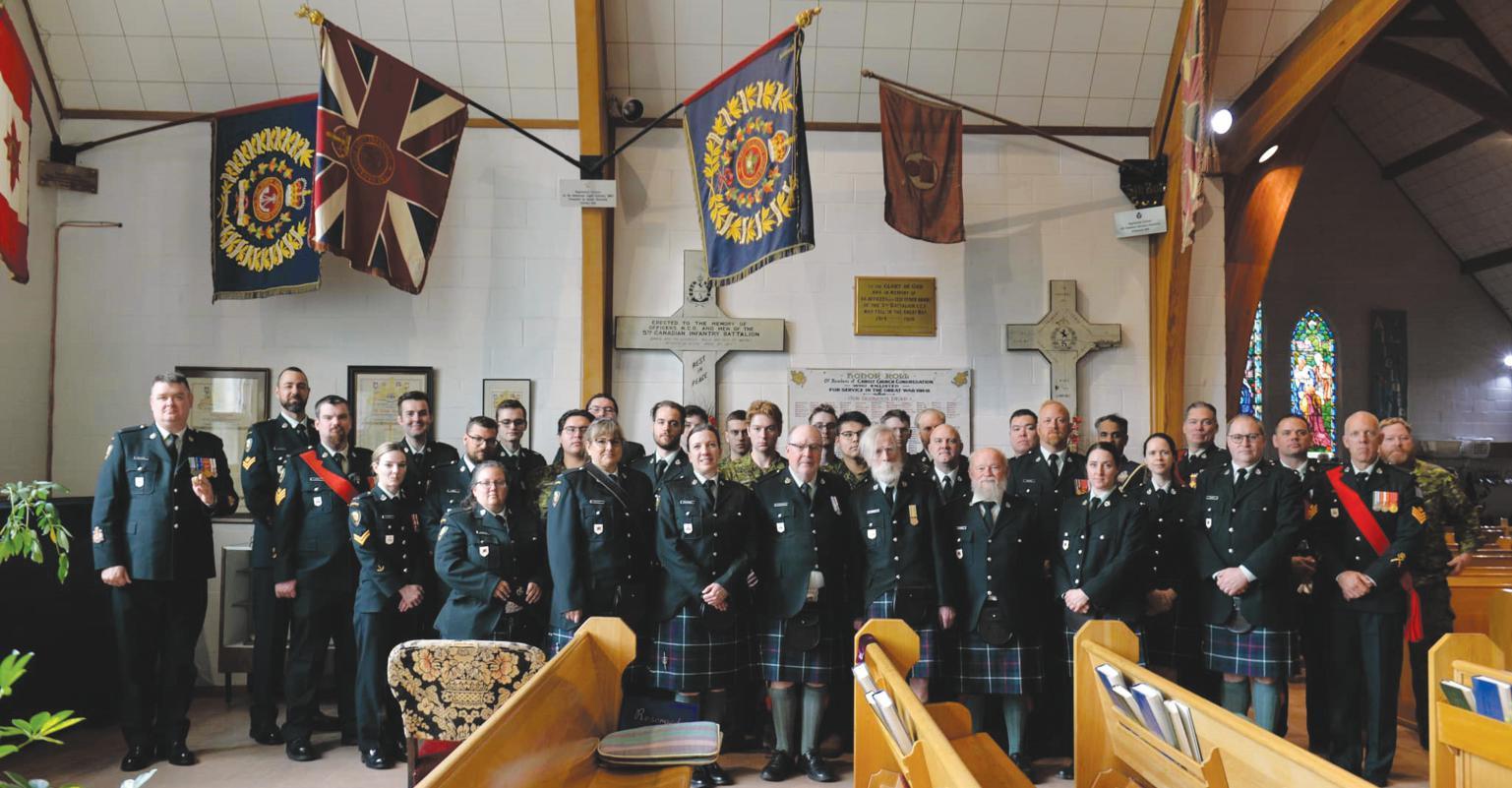
By the Rev. Peter Coolen
SASKATOON — On May 26, the morning silence in the Mayfair neighbourhood was broken by the skirl of bagpipes, the cry of orders and the sound of marching as members, retired and serving officers, and ranks of the North Saskatchewan Regiment (NSR) paraded from the Sgt. Hugh Cairns Armouries to Christ Church Anglican for their 2024 church parade service.
The relationship of Christ Church and the NSR has existed from the founding of the parish. The church is the Garrison Church for the regiment, houses the regimental museum and also serves as the resting place for the retired royal battle flags or colours for the regiment.
Sgt. Hugh Cairnes V.C. was a member of the regiment and also a member of Christ Church Parish and sang in its choir; many of the past rectors of the parish have also served as chaplains for the regiment.
The service on May 26 was conducted by the Christ Church parish priest, the Rev. Mark Kleiner, while Malcolm Young, commanding officer (Ret’d) N.S.R. provided a homily and a talk on the history of the
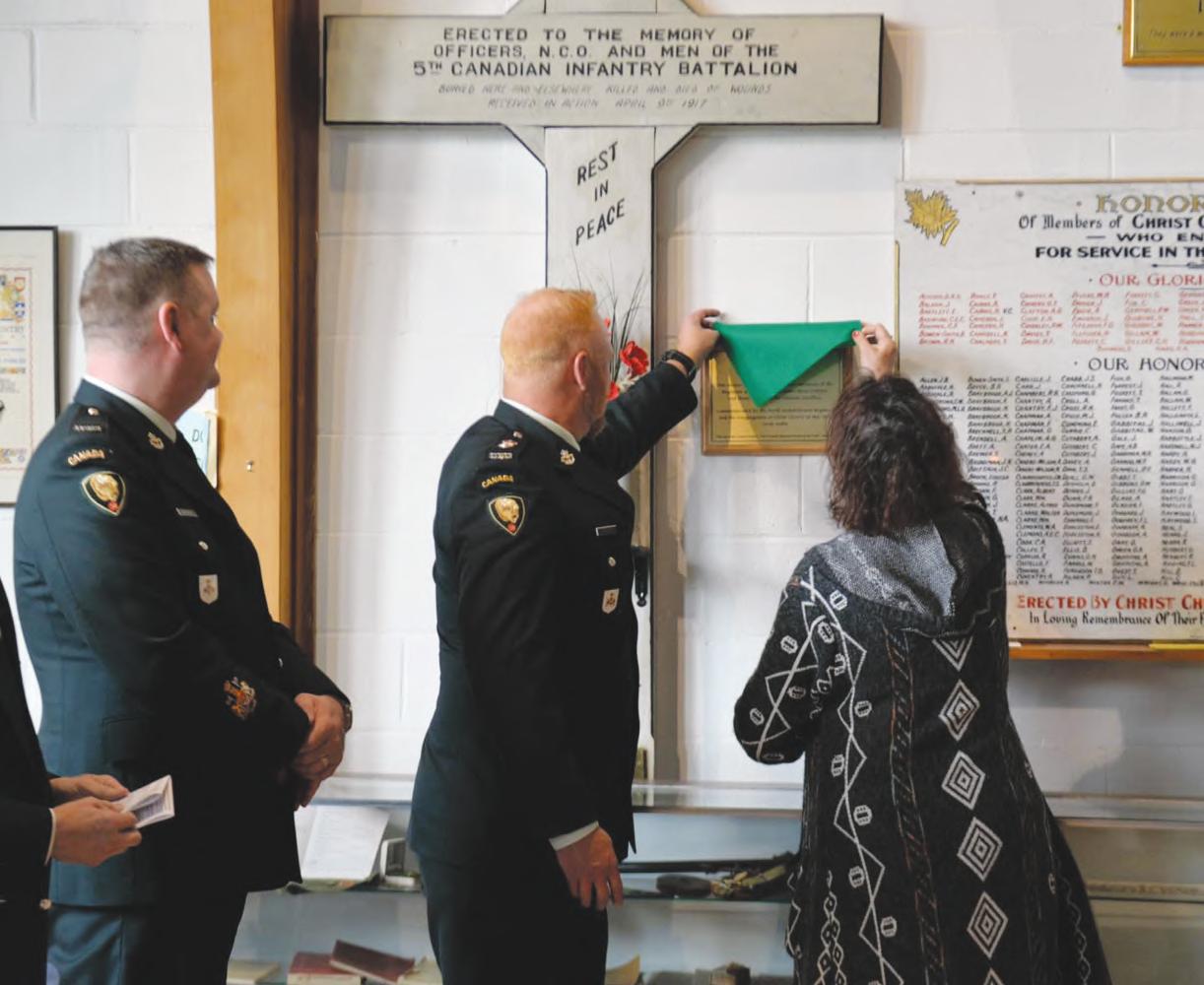
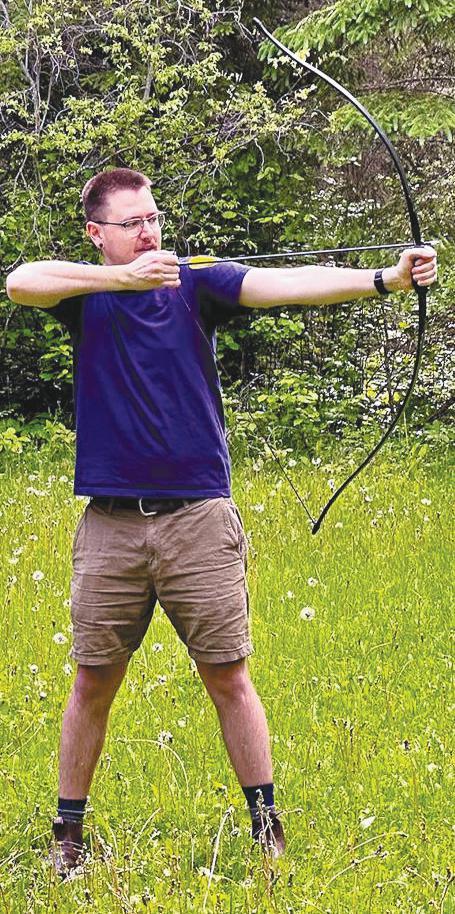

Submitted
CAMP OKEMA — The Diocese of Saskatchewan had a great youth retreat at Camp Okema over the weekend of June 25. This retreat saw 12 youths aged 13 to 18 come from all across the diocese to learn more about following Jesus together.
“We finished our video series, ‘The Search Begins’ and explored three fundamental questions: Who is Jesus?, Who am I?, and What does church have to do with it?,” the diocese wrote on Facebook.
“Thank you to everyone who is praying for and supporting this ministry in various ways. Don't forget that we're still fundraising through the AFC's Say Yes to Kids! Campaign,” the social media post added. “We've fundraised $2,400 so far … Donate now through CanadaHelps at https://tinyurl.com/ sasksytk.”
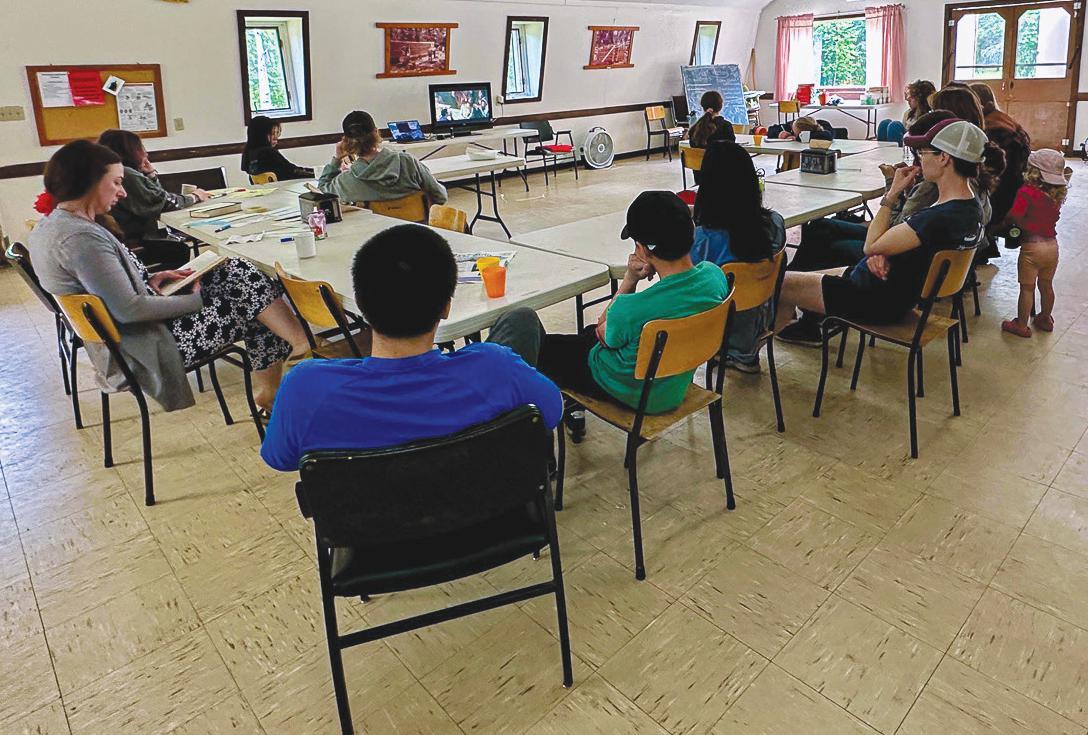
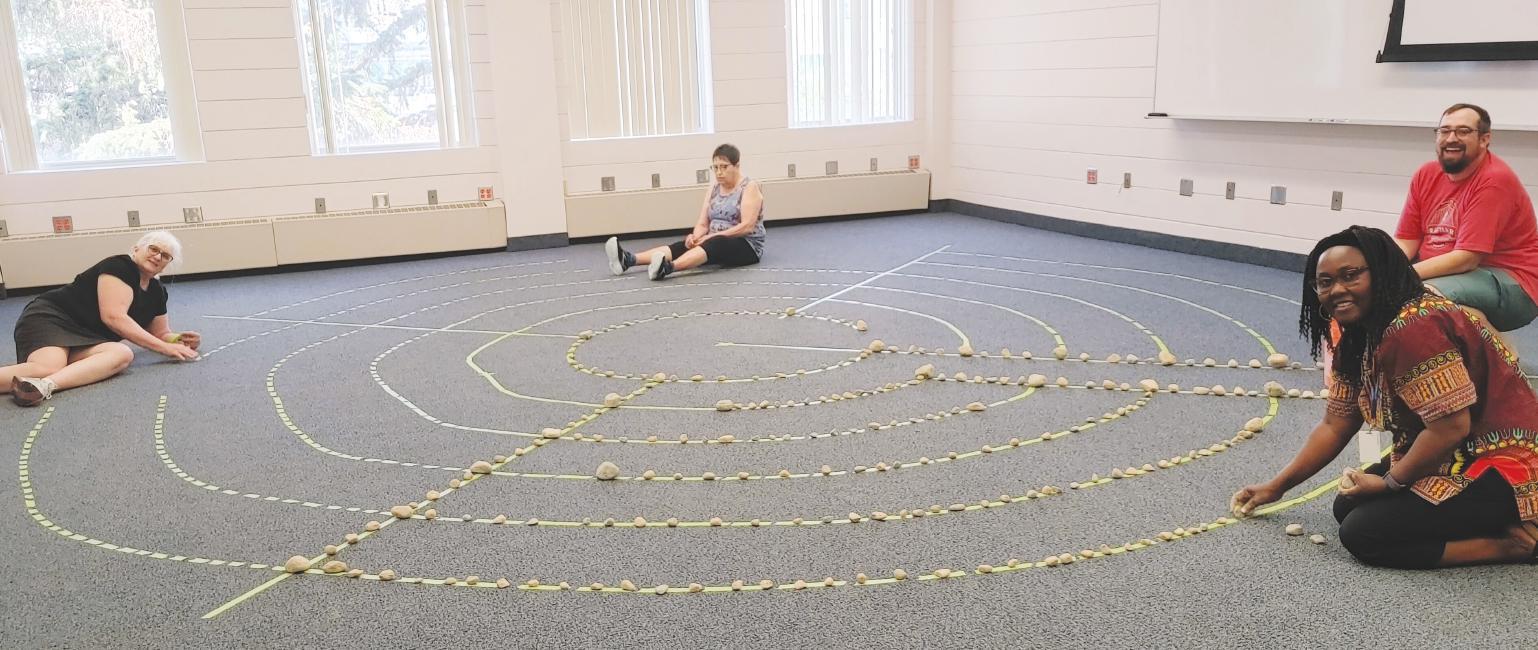
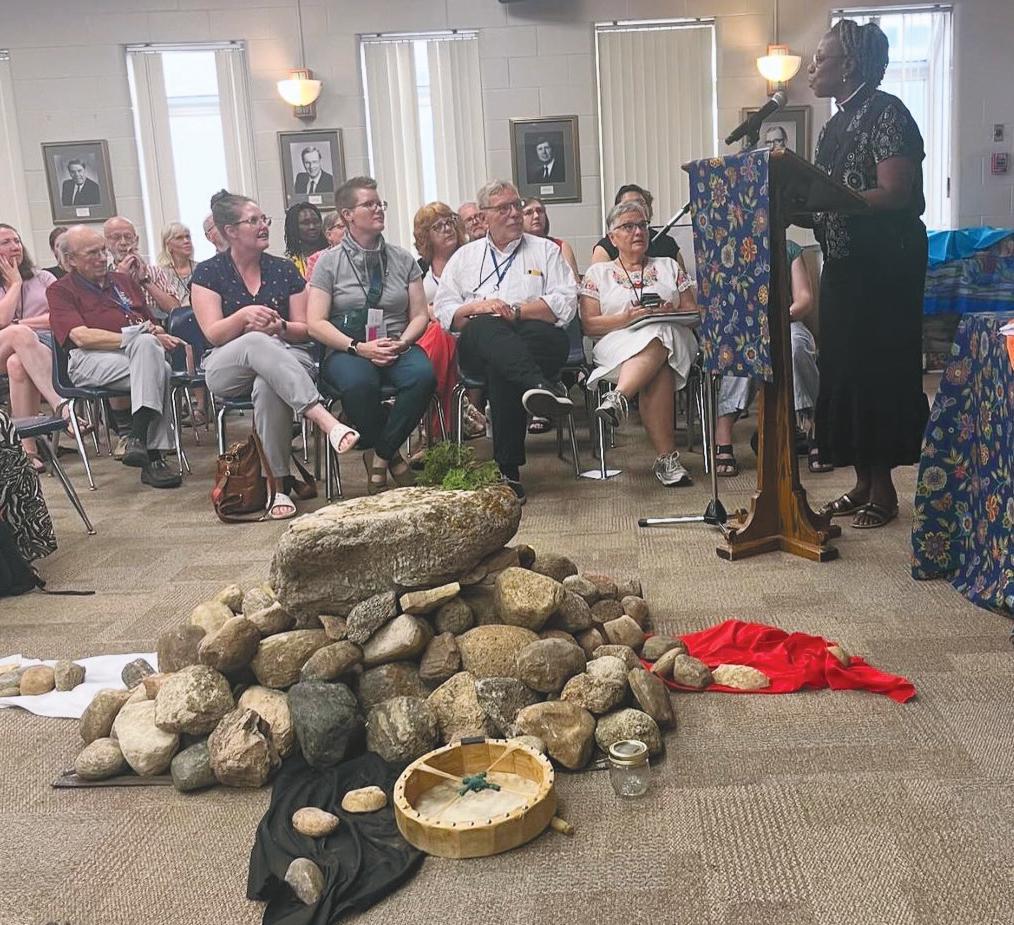
Participants were invited to take a stone to carry during the conference and afterwards, to become witnesses to all they experience.
By Rev. Christine M. Burton
REGINA — “He answered, ‘I tell you, if they were to keep silent, the stones would cry out’” (Luke 19:40).
This year’s Lutheran/ Anglican Worship conference, held in Regina, was entitled “Stones Cry Out,” a deliberate extract from this Bible verse.
The conference looked at the importance of being reverent towards the land, and respecting the role it has played in the lives of all those who have resided upon it, whether the Indigenous Peoples, or as pioneers or new arrivals, who also have the story of the land from which they came.
as many more. While most of the 150 attendees were clergy, there was also a strong contingent of lay participants, including some from Saskatchewan.
Each day had a Eucharistic service, with ministry from both churches. I think these were my favourite elements of the event –because the whole point of our coming together was to find ways to make worship a fuller and more meaningful experience of, and with, God.
Elements of First Nations spiritual practices were incorporated into the national Anglican/ Lutheran worship conference held in Regina in July.
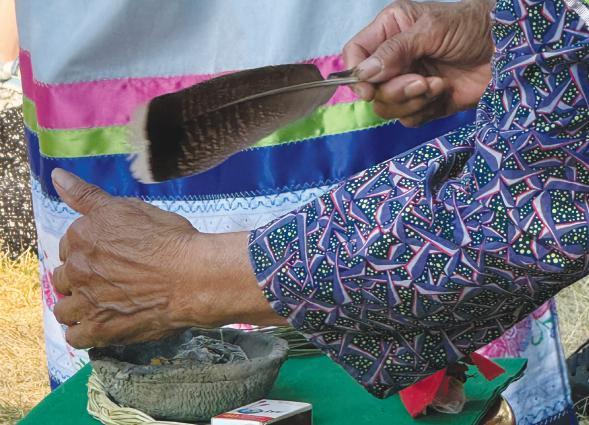
Jesus told the pharisees that if the disciples did not call to God, the earth itself would cry out — as it surely is, in the form of floods, fires, and other disturbances, begging God for mercy and respect as it tries to cope with the effects of human-caused climate change.
With such a rich base for discussions, the conference, composed of plenaries and workshops, looked at a wide range of topics, from ways to “decolonize” worship, to new worship music in both the Canadian Anglican and Lutheran churches, new language for land acknowledgements, ways of receiving and giving back to the land, as well
It was beautiful to watch our churches, joined through covenant, living out their partnership and commitment to God, in worship.
This same partnership was instrumental in organizing the conference.
The Diocese of Qu’Appelle was ably represented by Synod Office staff member, Kate Berringer, heavily involved in both the organization and roll out of the conference, as co-chair of the event; Deacon Susan Haacke (hospitality sub-committee); Rev. Jesse Miller (chaplain); Archdeacon Kim Sherwin (workshop sub-committee) and Rev. Canon Cheryl Toth (worship sub-committee).
More information about the events and workshops can be found at https://www.national worshipconference.org/.
By Joanne ShurvinMartin (with thanks to Eleanor Taylor)
BEECHY (Qu’A) — In 1963, when David Nevett was asked where he would like to have a summer student placement, he said, “anywhere but the Prairies.” He was sent to Lintlaw, Sask., and spent his entire ministry in the Diocese of Qu’Appelle.
Canon Nevett’s final service was on June 30, a service of confirmation in St. Michael and All Angels, Beechy. Bishop Helen Kennedy presided, and Marilyn Joyce Giverhaug was confirmed.
After the service, people gathered downstairs to celebrate Nevett’s retirement and honour his ministry in the diocese.
Nevett was born in Orangeville, Ont., and studied evangelism and social service at the Anglican Church Army Training College in Toronto. (The college is now called Threshold Ministries and is located on the East Coast.)
After graduating, he was sent to Shaunavon for the summer, and then to Chaplin for one and a half years. In the spring of 1966, he went to Beechy and Lucky Lake, driving a sporty, new Chevelle, which made a bit of an impression! He stayed until 1973.
Nevett attended the University of Saskatchewan from 1968 to 1973, receiving a BA in 1972, and M. Div in 1973. He was ordained a deacon at St. Mary, Kindersley, in 1972, and priested the following year in the parish of Balcarres and Abernathy.
In 1978 he took on Big Country Parish, a ninepoint parish based out of Kindersley, with an area stretching from near the Alberta border to Eston and Brock. In 1985 Nevett adopted his son, Jesse, and two years later adopted Murray, completing his family.
While at Kindersley, Nevett began organizing tours to England, Wales and Scotland, where he booked flights, bus tours, meals and accommodations for participants. He says the idea for these tours came after a trip he and Rev. Charles Sells took in 1977. They rented a car and “drove 3,300 miles
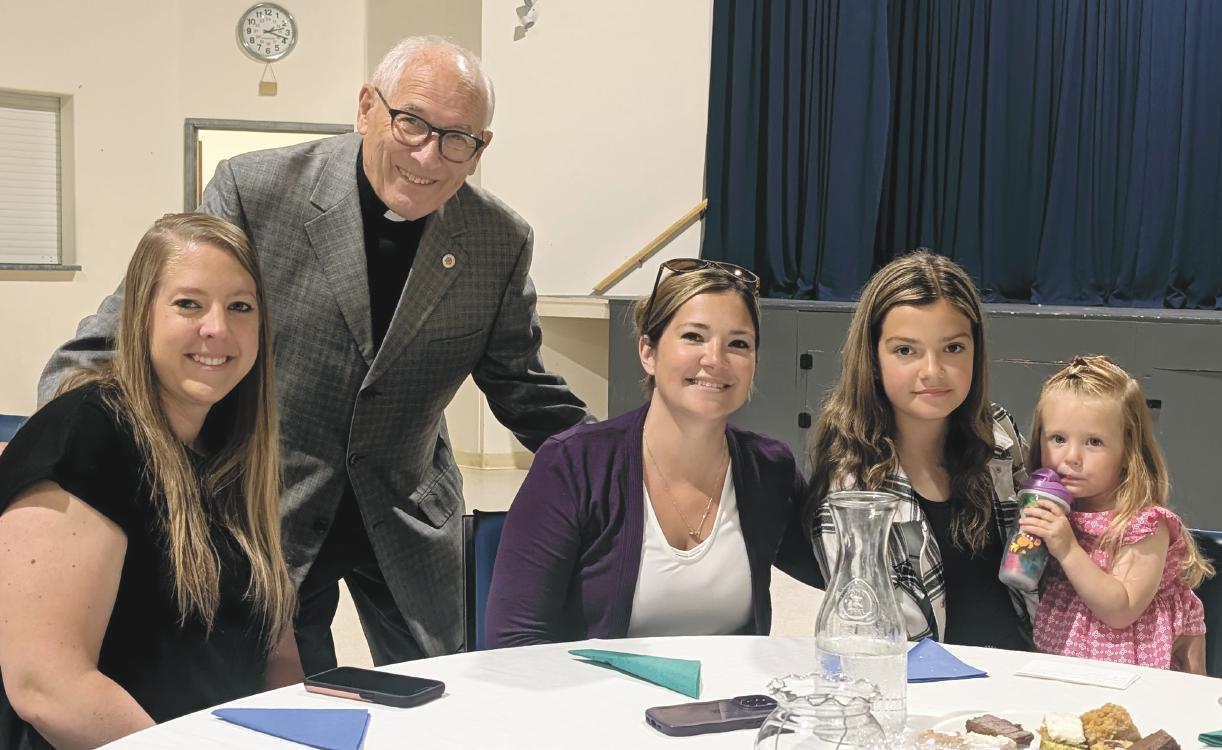
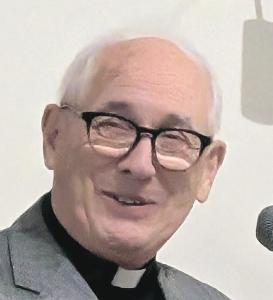
around England, Wales and Scotland following an itinerary laid out by Archdeacon Peter and Mary Lucas, and that became the basic plan for the tours.”
He recalls showing travel photos from that trip and hearing people say, “We always wanted to go but we don’t want to go alone and we don’t want to go with a group of strangers.”
“In 1979, 10 of us went and I rented a mini bus and drove it myself, booked accommodation and attractions,” says Nevett. “That went well, so we went bigger with 30 people, a tour coach and driver.” In total he led six tours between 1979 and 2000.
In 1986, Nevett moved to Maple Creek. During his 18 years in the parish, he helped organize the Healing Lodge near the
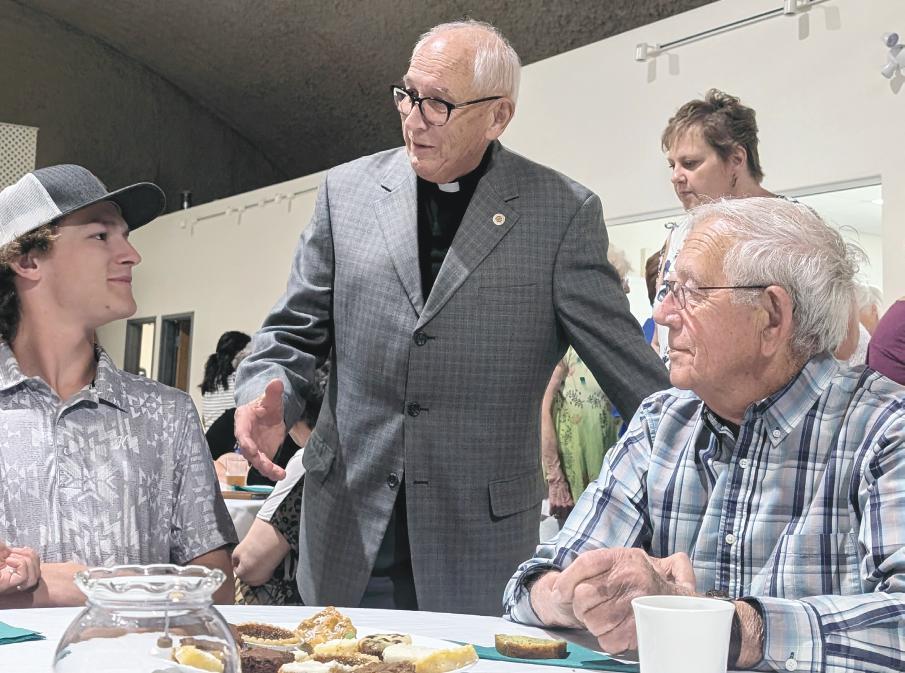
town. The Healing Lodge involved First Nations women from across Western Canada, members of Corrections Services Canada, residents of the Neekaneet Cree First Nation, and from the Maple Creek community. He also helped at nearby Camp Harding.
Nevett says, “I first retired in 2004,” when he went to England “and lived with an elderly cousin in an old farm house where she had lived for 83 years.”
Instead of being a total holiday, when he learned
that three surrounding parishes were without clergy, “I got permission to officiate from the Bishop of the Diocese of Chester and the Archbishop of York.”
On returning to Qu’Appelle, he worked part-time at various parishes that were without a priest, until those positions were filled. While filling in at Beechy/Lucky Lake and Outlook, a parishioner suggested he look at a house for sale in Beechy, and within three days he bought it and lived there
until he moved to Swift Current in July of this year.
Of his retirement, Nevett says his plan is to “spend more time with my family, visit my cabin at Big River, and maybe even write a book about people I have met throughout my ministry.
"I continually thank God for the life I have had to date.” He says that when he was 17 he offered his life to God, and “I could not have even imagined the wonderful adventure God would give me.”
By the City of Lloydminster
(S'toon) — The City of Lloydminster has begun restoring the iconic Old Minster Log Church, which dates back to the early 1900s. This significant project, which aims to preserve a vital piece of Lloydminster's heritage, began in July.
The decision to restore the Old Minster Log Church comes after the city identified structural deficiencies in October 2021, particularly with the east wall, which necessitated immediate stabilization measures.
Subsequently, in late 2022, a specialized contractor developed a comprehensive restoration plan outlining a roadmap to restore the building to its original state while ensuring its long-term preservation.
Reflecting on the importance of preserving historic landmarks, Natalie Clysdale, manager of the Lloydminster Museum + Archives, emphasized, "Historic buildings, like the Old Minster Log Church, provide not only historical value to our community but also cultural value; they provide a tangible link to the past and a sense of stability.
"The Old Minster Log Church connects to history and represents the hard work and dedication of those who helped settle our city."
The restoration efforts have received a significant boost through a partnership with the Friends of Weaver Park. In May 2023, the city approached the Richard Larsen Barr Colony Foundation, now operating as Friends of Weaver Park, proposing a collaborative fundraising initiative to support the restoration project.
A partnership agreement was successfully executed,
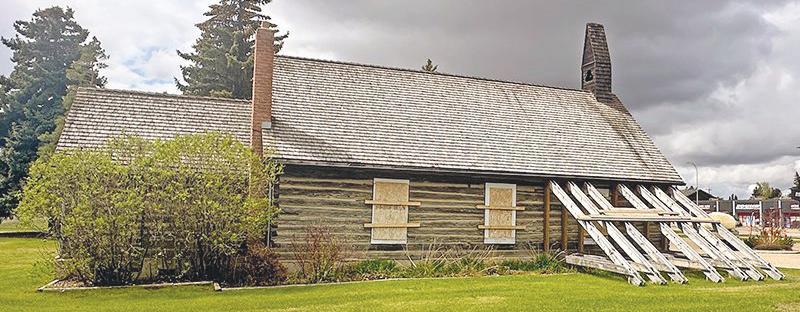
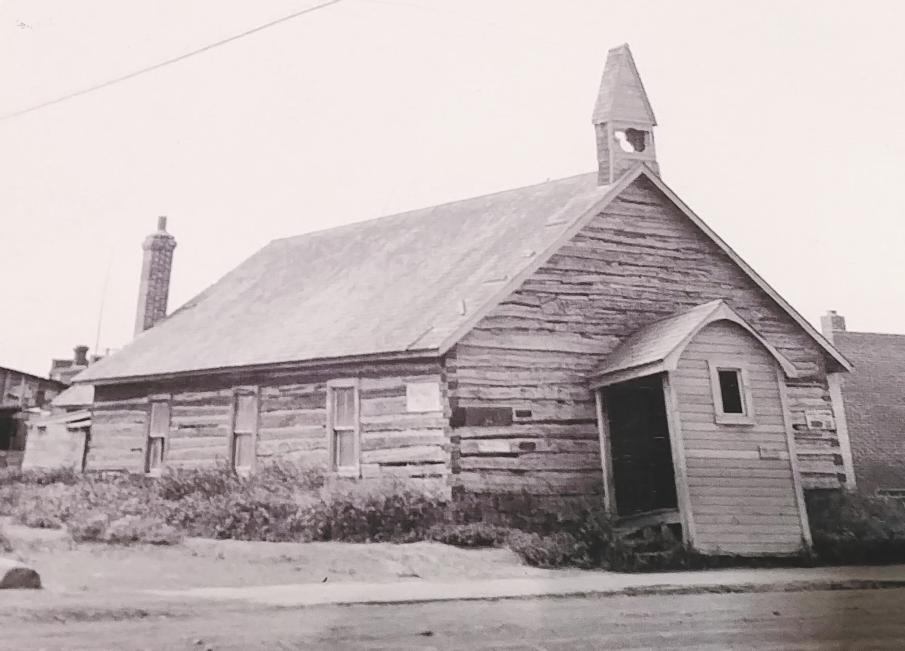
marking a pivotal moment in preserving Lloydminster's historical legacy.
"We’re immensely grateful for the Friends of Weaver Park's support in our endeavour to restore the Old Minster Log Church," says Clysdale. "Their contribution underscores the community's commitment to safeguarding the shared history and ensuring that future generations can appreciate the cultural significance of this
cherished landmark."
Upon completion, the rehabilitation work is poised to extend the life expectancy of the Old Minster Log Church by over 50 years, ensuring it remains a beacon of Lloydminster's heritage for decades to come.
All restoration activities will adhere to the Standards and Guidelines for the Conservation of Historic Places in Canada, ensuring the structure's integrity while preserving its historical authenticity.
The Log Church officially opened on August 12, 1904. By 1910, the town and congregation had outgrown the Log Church’s capacity, and the current St. John’s Minster Anglican Church opened. The Log Church continued to be used for Sunday School, meetings and small concerts until it was sold to J. S. Phillpott for

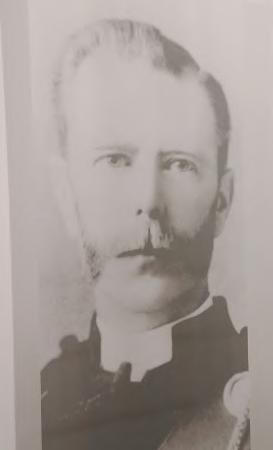
Isaac Barr was an Anglican clergyman and promoter of British colonial settlement schemes, most notably the Barr Colony, which became Lloydminster. However, planning the colony took so much time that he did not mix with the group. Instead, Rev. George Lloyd (pictured) bonded with the colonists. After helping establish the town, he moved to Prince Albert in 1905 and served as bishop of Saskatchewan from 1922 to 1931. He died in 1940 at age 79.
by Jason G. Antonio
use as a warehouse in 1919.
The City of Lloydminster took ownership of the church in 1960. In 1961, it was moved to Weaver Heritage Park, and some restoration work occurred.
autumn.
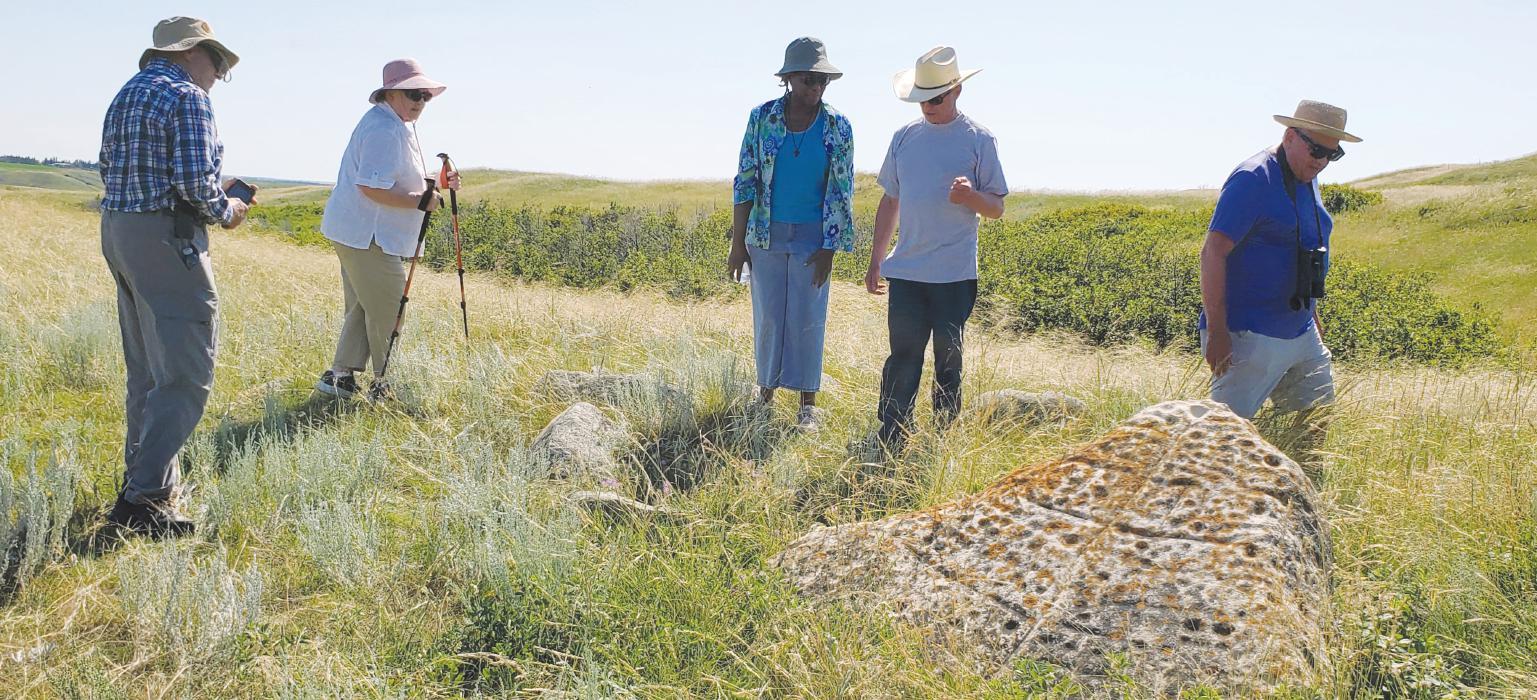
David Saville, a diocesan lay reader, led a group of hearty Anglicans through the Ancient Echoes historic site at Hershel in west-central Saskatchewan in mid-July. They viewed ancient First Nations petroglyphs on the trail, as well as paleontology and taxidermy at the Ancient Echoes Interpretive Centre. Pictured, from left, are
Rev. David Nevett, Rev. Eleanor Rockabar, Archdeacon Catherine Harper, David Saville and Rod Ashley. Rev. Susan Anholt and Jan Healey also attended. Saville is a board member of Ancient Echoes, with a true heart for Saskatchewan history. For more information see www.ancientechoes.ca.
By Rev. Canon Marie-Louise Ternier
Editor’s Note: Rev. Canon Marie-Louise Ternier, incumbent at St. Andrew’s Parish, Humboldt, is part of the newly formed Diocesan Communications Team.
With countless means at our fingertips — email, text, phone, social media, websites, newsletters and print publications — one would think that we have truly improved communication in our world, our families, our social circles and in our church. However, nothing is further from the truth.
Communication gaps stubbornly persist like pesky mosquitoes, obstructing our best intentions.
Such gaps occur in all spheres, including in church circles. I am the only Anglican priest living and serving in my geographical corner of our diocese. Given this fact, it would be very easy to feel isolated, disconnected and out of the loop.
However, I’m aware of my personal need to stay connected with colleagues and diocesan leadership. While being the eternal initiator is frustrating and annoying — I remind oth-
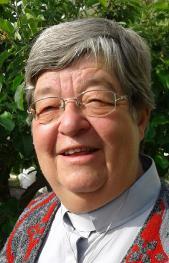
ers that the highway runs both ways — I believe in the value of fostering collegial bonds of mutual support. Setting the initiator’s fatigue aside, I make contact, arrange social visits and participate in relevant meetings, in person and remotely.
These efforts pay off in generous measure; fostering friendship and support grow trust and rapport. Sharing personal and professional ups and downs, one begins to hear a lot.
Sadly, when it comes to communication woes, passive resignation escapes many a lips in discouraging comments and helpless resignation to “the way things are.” I really wonder if such isolation, resignation and disconnection are inevitable. Could a change in perception and drive, desire and interest, break through the isolating silos?
My heart aches for just such a change in all of us. Communication is a two-way street. It is the duty of leadership to communicate clearly, transparently and in a timely
fashion. It is also the duty of clergy and parishioners to receive, commit to memory and to respond, as well as to share relevant information.
We all have a duty to monitor how we transmit and receive information, fostering vigilance about our own blinders in seeing and interpreting, retaining and hearing.
Communications theory has long established that, consciously and unconsciously, we construct reality and evaluate incoming data, based on foundational life experiences, for better and for worse.
Such extensive data screening is vital to managing the relentless barrage of information coming at us 24/7. This complex brain/mind process creates so-called mental maps by which we navigate life.
However necessary this survival tactic is, by definition it has serious limitations, resulting in selective hearing, processing, retaining and transmitting information. What is deemed important and committed to memory by one person is not necessarily perceived as such by another.
Moreover, the soundbyte mentality of today’s social media culture
Together we are responsible for contributing to the flow of communication. There is always room for improvement, and we need a spirit of grace and mercy towards each other.
has crept into our minds — and our pews! — unawares, resulting in scanning information but not retaining or following up on it.
More than once, I have heard someone complain that they didn’t know about something, only to discover that the “something” had been communicated in a timely fashion but had been ignored. It’s always easier to point the finger than to take ownership of a problem. When hearing that “the diocese” or “the church” does not communicate properly, I’m inclined to reply that “the church/diocese” is not some disembodied entity out there.
The diocese, the church, is us. Together we are responsible for contributing
to the flow of communication. There is always room for improvement, and we need a spirit of grace and mercy towards each other. We are called to minister to God’s holy people in the church. We do that best when we make every effort to communicate intentionally and clearly, and feel supported and encouraged, guided and comforted by colleagues, mentors and bishop.
It is our duty to foster such bonds of affection and collegiality in service of the Gospel and the church. Heed the words from the Holy Book: Everyone should be quick to listen, slow to speak and slow to become angry, because human anger does not produce the righteousness that God desires (James 1:19-20).
But I have prayed for you ... that your faith may not fail. And when you have turned back, strengthen your brothers” (Luke 22:32). Finally, all of you, have unity of spirit, sympathy, love for one another, a tender heart, and a humble mind (1 Peter 3:8).
Therefore lift your drooping hands and strengthen your weak knees, and make straight paths for your feet, so that what is lame may not be put out of joint, but rather be healed. (Hebrews 12:12-13).
By Joanne Shurvin-Martin
ESTEVAN (Qu’A) — After more than a dozen years in Qu’Appelle, Archdeacon Wilma Woods has retired. Her husband, Rev. Brian Woods, retired in 2019, but remained active doing pulpit supply in the archdeaconry and assisting at St. Giles, Estevan.
After growing up and working in British Columbia, Brian and Wilma moved to Saskatoon in 2004 to attend the College of Emmanuel and St. Chad. “This diocese welcomed us when we came to Emmanuel,” recalls Wilma, “and Bishop Duncan Wallace believed in us.”
Wilma spent the first year completing a degree in religious studies. Brian took the four-year bachelor of theology course over five years, so that he and Wilma could convocate together, which they did in 2009.
They recall that during their time at Emmanuel, the college moved from its own building into Lutheran Theological Seminary.
Wilma said that in those years of much change at the college, she learned not to be afraid to change things.
The couple were ordained May 1, 2009, at St. John’s Cathedral, Saskatoon, by Bishop Rodney Andrews for Bishop Dennis Drainville of the Diocese of Quebec, and Bishop Greg KerrWilson preached.
The first parish for the clergy couple was the Parish of the Magdalen Islands in Quebec. Walter Deller, the principal of Emmanuel, had recommended them to the Bishop of Quebec, but the Woods were not aware of this when Brian noticed a
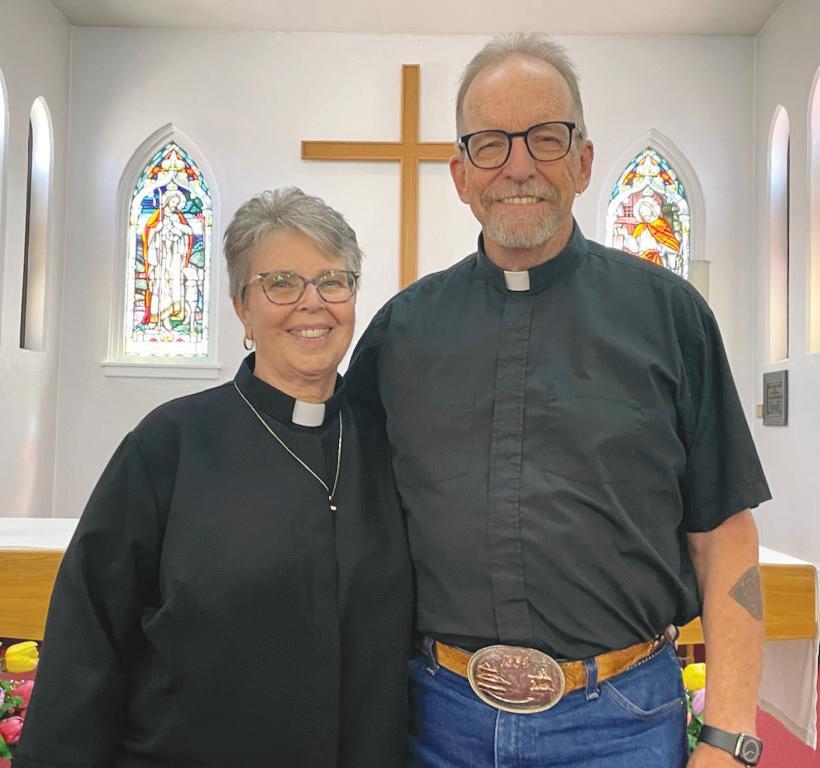
job posting for Magdalen Islands.
The very next morning they received an email from the Bishop of Quebec offering them the job.
They learned about isolation in the two years and seven months spent on the islands in the middle of the Gulf of St. Lawrence. It was a five-hour ferry ride to the mainland, or a $1,000 flight. In addition, the community was predominantly francophone, with only six per cent being English speaking.
Wilma points out, “that was our congregation.”
They had previous experience in a remote community in 2007 when they did a cross-cultural internship in a Cree and Metis community north of Thompson, Man., on the
rail line to Churchill. They have lived on both coasts of Canada, in the north and in the middle.
In January 2012, the Woods returned to Saskatchewan, and were co-incumbents for the Anglican Lutheran Ecumenical Community. ALEC had been operating for 13 years before they arrived, pre-dating the Waterloo Accord that brought Canadian Anglicans and Lutherans into full communion.
Brian pointed out that they had trained alongside Lutherans in theological college, and had Lutheran instructors, so they were fairly familiar with the denomination.
In March 2014, Wilma was collated Archdeacon of St. Aidan. Later that year Brian accepted
the position of priest at All Saints, Weyburn, beginning the first time the couple had served in different parishes. For about 18 months, they managed with daily phone calls and driving to the other’s location on regular days off.
“You can make it work,” says Wilma, “but I probably wouldn’t do it again.”
In January 2016 Wilma moved to Weyburn to be co-incumbent with Brian for one year.
Brian remained in Weyburn until 2019 when he retired. In March 2017 Wilma became incumbent at St. Giles, Estevan, which is less than an hour drive from Weyburn.
The Woods both enjoyed ecumenical ministry. “Even on the Magdelens,”
said Wilma. “We had Taizé services and sang and prayed together, and even blessed boats with the Roman Catholic priest.”
When asked about memorable moments in Qu’Appelle, both mentioned many events. Each spoke highly of their internships — Brian with then-Archdeacon Rob Hardwick in Swift Current, and Wilma with then-Rev. Mike Sinclair in Estevan.
Wilma said, “I always loved the Q Events years ago, and Messy Church.” Brian adds that his most memorable event was a baptism at Messy Church in Whitewood.
Instead of a font with a little bit of water, they used a wading pool — protecting the floor with tarps — and everyone in the congregation took part.
Messy Church started with only a handful of children, but grew to involve many children, and their parents, from the Anglican and Lutheran churches but also other denominations in town and people who had been unchurched.
The Woods still have strong connections to Whitewood, and were invited back to take part in the ministerial association blessing of graduates from Grade 12. One of those was a boy baptized at Messy Church.
Wilma mentions several events at Estevan, including a Blanket Exercise and Rev. Alexander Campbell smudging the congregation before an indigenous service, a Pride service held every year, and the wonderful youths at St. Giles.
In retirement, the Woods plan to travel and live in their trailer until they decide where to settle down.
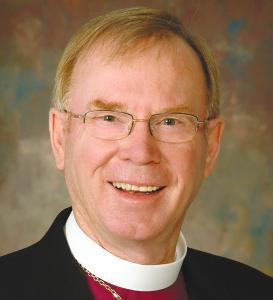
Submitted
SASKATOON — Lt.-Gov. Russ Mirasty recently made two appointments to the Western Development Museum’s board of directors, including a retired Saskatoon bishop. The WDM welcomed Rodney Andrews (Saskatoon) and Brian Martynook (Moose Jaw),
who bring experience and community leadership to the organization, according to the museum.
Since his retirement, Andrews has been volunteering at the WDM.
“As an arts student at the University of Saskatchewan, I chose Canadian history as my major, with a special interest in western
Canadian history,” he said.
“When I am at the Western Development Museum, I feel I am walking in that history. I enjoy being a museum guide. WDM has a special place in my life. I am glad to be a director.”
Martynook is a staunch advocate for community development and has served on numerous
boards and committees. He brings leadership experience from diverse industries to the WDM.
“I believe that embracing our heritage is essential for every community. It is particularly pleasurable to take children to the WDM exhibits and interactive displays where they can uncover the past in a hands-on way,” he added.
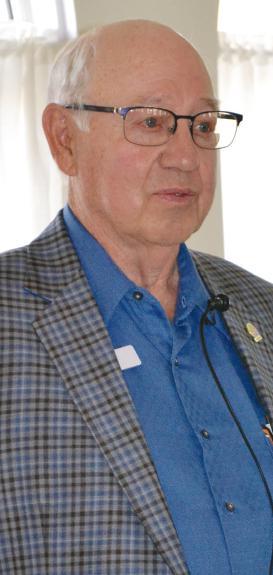
Terry Gates explains the connection between Grow Hope, Canadian Foodgrains Banks and PWRDF.
Joanne Shurvin-Martin
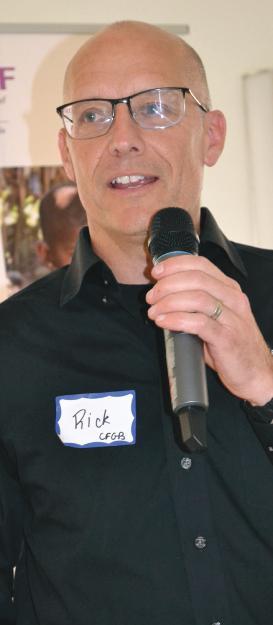
Rick Block is the Saskatchewan regional rep for Canadian Foodgrains Bank.
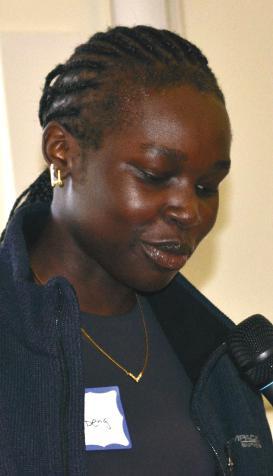
Abuk Deng, a member of PWRDF Youth Council, described her participation in Hunger on the Hill, when a group of young people met with Members of Parliament and policymakers to discuss food security at home and overseas.
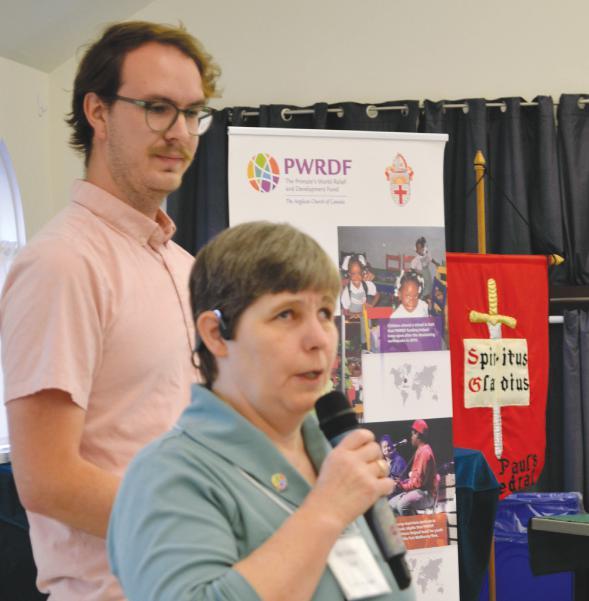
By Joanne Shurvin-Martin
REGINA — About 30 people attended an information meeting celebrating Grow Hope Saskatchewan, hosted by the Diocese of Qu’Appelle and PWRDF, and held in Bagnal Hall of St. Paul’s Cathedral.
Most of the audience was Anglican, with Roman Catholics and Mennonites also participating.
Grow Hope Saskatchewan is a partnership of five Christian relief and development agencies (and their local church constituent representatives) that are members of the Canadian Foodgrains Bank (CFGB).
This includes Canadian Baptist Ministries; Development and Peace — Caritas Canada (with Saskatoon Roman Catholic Diocese); Mennonite Central Committee; Presbyterian World Service and Development (with Synod of Saskatchewan Presbyterian Church); and the Primate’s World Relief and Development Fund (with Anglican Diocese of Qu’Appelle).
In 2024, Grow Hope SK has six families growing crops in support of the project, totalling 411 acres. There are more than 200 projects across Canada, with the majority in the Prairie provinces.
Here’s how Grow Hope
SK works: the farmers donate their land and labour to grow a crop for CFGB, with urban and non-farm sponsors contributing to cover input costs such as seed, fertilizer and fuel, which can cost up to $350 per acre. After harvest, the farmers sell the crop and donate the proceeds — which can be up to $600 per acre — to CFGB. Through a partnership with Global Affairs Canada, the proceeds may be matched 4:1.
in the Bible stories of feeding the 5,000.
She said she was
Grow Hope Saskatchewan began in 2017 to find creative ways to engage more people, both rural and urban, in the effort to end global hunger.
countries; and 80 per cent of displaced people are from areas where people are chronically hungry.
Last year, Grow Hope SK raised more than $330,000 prior to any matching grants. In 2024, Grow Hope SK has six families growing crops in support of the project, totalling 411 acres.
excited about the work being done through Grow Hope Saskatchewan, and added, “I would love for Qu’Appelle to lead in this.”
While CFGB has been working to end hunger for more than 40 years, Grow Hope Saskatchewan began in 2017 to find creative ways to engage more people, both rural and urban, in the effort to end global hunger. Last year, Grow Hope SK raised more than $330,000 prior to any matching grants.
Bishop Helen Kennedy welcomed people to the meeting on June 8, speaking about the province as a major agricultural producer. She said, “Feeding the world is our gift,” and mentioned that Jesus also knew about feeding people, as reported
Terry Gates, of Immanuel Parish, Regina, described himself as “the new kid on the block” for Grow Hope SK. He said that after he heard a presentation last spring by Mary Oberio from Kenya, speaking about women and food security in Kenya, he was moved to become involved in the work here.
He said he was impressed with the cooperation he has seen — provincially, nationally and internationally.
Gates showed some numbers relating to hunger: 830 million people on Earth are hungry; of that number, 98 per cent are in developing
Gates told how PWRDF is working for justice; working with trusted partners around the world; and working for positive change. The same is true of other member agencies (i.e. denominations) of the Canadian Foodgrains Bank, and is an aspect of the wisdom of working together to help end hunger.
PWRDF joined CFGB in 2007 to work directly with a famine relief agency.
CFGB provides emergency food in times of crisis, from natural disasters and human conflict, as well as working to improve long-term food security in many areas, through programs to prevent erosion, conserve water and other sustainable agriculture practices.
In the early years of CFGB, grain donated by Canadian farmers was shipped to areas experiencing famine. However, often that grain was not familiar to the people in need.
Since 2008 no grain is actually shipped. Now the grain is sold and the organization purchases more appropriate food from nearby sources.
Rick Block and his wife, Jacquie, are Saskatchewan regional representatives for Canadian Foodgrains Bank. He told the audience that CFGB has been “speaking truth to power” for 40 years. He said that although the emergency food program is essential, the work to help long-term food security is the most rewarding.
Like PWRDF, CFGB works with local agencies. They do not fly in from rich countries and think they have all the answers. About one-third of the CFGB budget supports long-term food security.
Block showed photos taken when he visited CFGB programs in Ethiopia, some of which PWRDF also supported.
The photos showed how poor agricultural practices, along with a lack of technical support and access to resources, have degraded thousands of acres of soil, and how people are now reclaiming that land — working together to plant trees, and manually digging trenches to control water flow and prevent erosion. Similar programs are operating in Kenya, Mozambique and Zimbabwe.
For more info, and to donate, go to www. growhopesk.ca.
By Joanne Shurvin-Martin
CYPRESS HILLS
PROVINCIAL PARK
(Qu’A) — Nine women participated in the first Women’s Craft Weekend at Camp Harding from June 21 to 23.
On Friday evening, Kate Berringer, program director, explained, “This is not meant to be a traditional retreat, but a more informal gathering of women to worship, spend some time in God’s creation, and enjoy each other’s company.”
That same evening, the chaplain, Rev. Christine Burton, told the group that humans’ creative impulse is from God.
“The first thing God did was create. And, since we humans were created in God’s image, creativity is baked into our DNA. But only God is the Creator — we make things.”
Burton brought several fist-sized stones, and told each woman to choose one and paint her name and an image of something that God had created.
Throughout the weekend, the women would select a stone at random and add another drawing to it, while praying for the person named. On Sunday, each woman reclaimed her stone, to contemplate all the images that had been added, and the prayers that went with those additions.
Burton also led short worship services during the weekend. The first was Compline on Friday evening, held by candlelight.
On Saturday morning, the campers enjoyed breakfast on the deck attached to the camp Mess Hall. All the meals were prepared by Jill Gloin and Gillian Sandham, both from St. Barnabas Anglican Church, Medicine Hat, and the campers appreciated their delicious efforts.
The Scripture reading for the morning was from Exodus 35, which describes how Moses told the people of Israel to make offerings to the Lord, of fine wool and linens; jewels and gold, silver or bronze; sacred
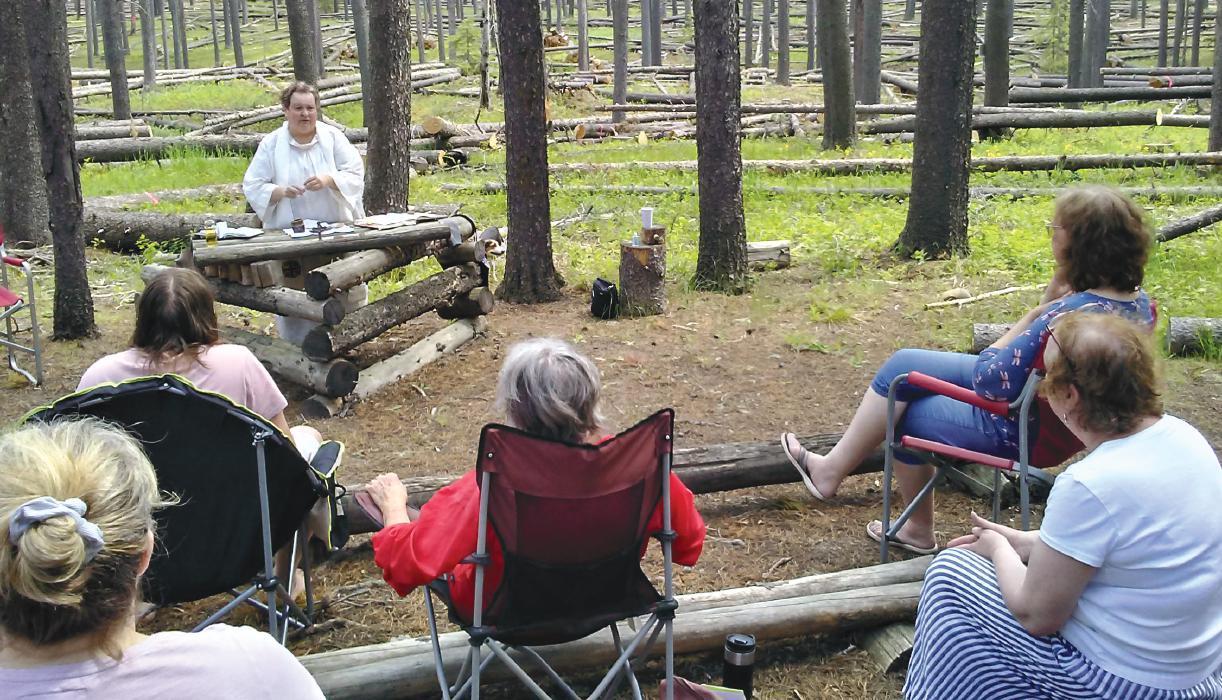
was celebrated
in June.

Experimenting with positioning during the card-making session during the women's craft weekend.
clothes for the priests; and many other items for worship.
The passage shows how art and craft work were used by both men and women to make gifts for God, who had created all the materials.
The rest of Saturday morning was free for the women to work on their individual crafts, to enjoy the surrounding forest, or as free time.
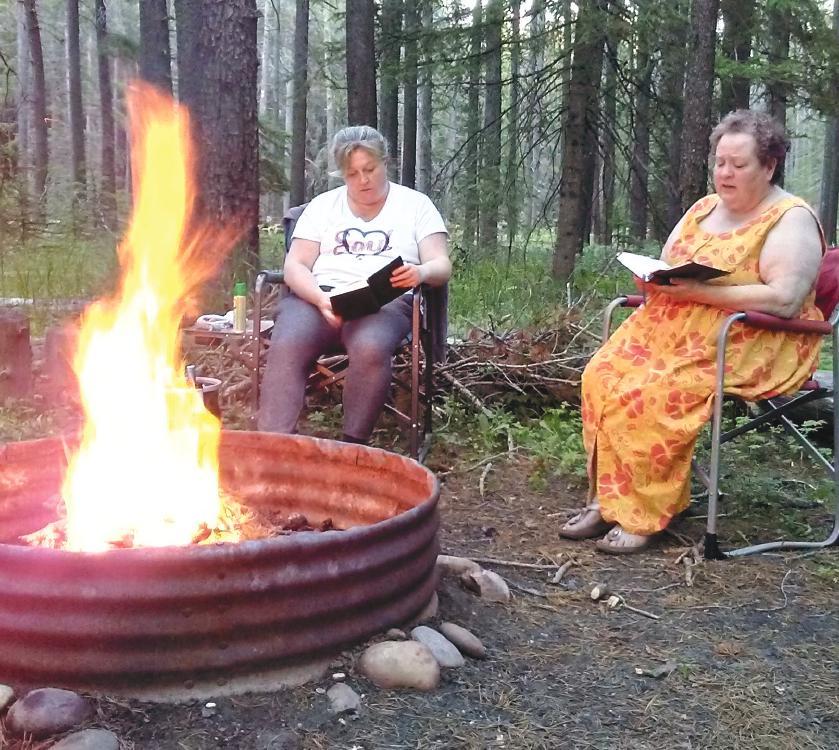
After a delicious lunch, the group heard a reading from Ecclesiastes 3, in which God makes things beautiful in God’s own time.
Burton showed the start of a new knitting project, and said that only in time would the pattern emerge — it is not shown in the beginning stitches.
A card-making demonstration began outside on the deck, but
quickly moved indoors when thunder began to rumble. Kate Berringer demonstrated several artistic techniques, and provided all the materials and equipment needed, to make beautiful and elaborate greeting cards. It was interesting to see how each woman, using the same basic materials, made unique cards.
That evening at dusk, Evening Prayer was said
around the campfire, followed by impromptu singing.
Sunday morning’s weather was ideal for the service in St. Mary in the Pines, the outdoor chapel at Camp Harding. Following another excellent lunch, campers packed and returned to their homes, with many saying they would love to have a similar camp in the future.
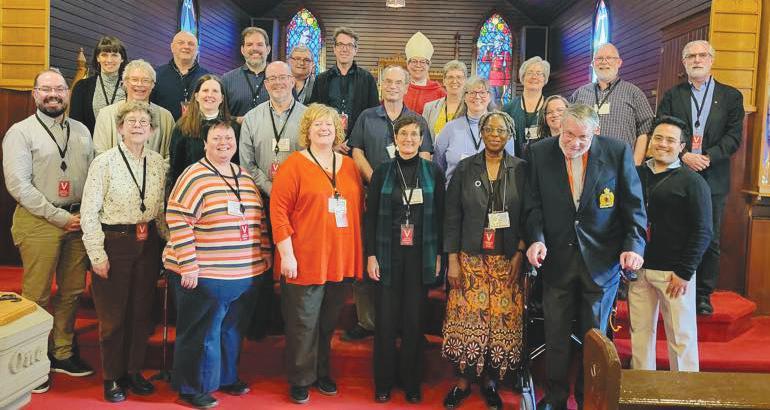
From April 22 to 25, executive archdeacons and officers from across Canada gathered in Regina for their annual conference. This picture was taken at the end of the Eucharist celebrated at the RCMP chapel, with Bishop Helen Kennedy presiding. Rev. Alan Higgs, former RCMP chaplain (front, second from right) was present for the Eucharist.
The ESC-WECAN
Licentiate in Theology Course
Offerings; Three-Year Course Rotation Beginning Fall 2024
The Coordination Team comprised of Emmanuel and St. Chad College and the Western Education Collaborative Anglican Network is pleased to share the following line-up of courses that make up part of the curriculum of the ESC-WECAN Licentiate in Theology for next two years.
All of the coursed listed below will be available online. Please register for courses at: esc-wecan.ca
To Enroll into the full Licentiate in Theology Program, request form from Local Diocesan L.Th. Coordinator.
In the Diocese of Saskatoon: Rev. Dr. Trish McCarthy trish.mccarthy@saskatoontheologicalunion.ca
Individuals may take these courses to enrich their own spiritual life , better equip them for current ministries or take while in discernment about a formal vocation
Biblical Studies : Saskatoon Diocese PART ONE Completed: Introduction to the Bible, Introduction to Hebrew Scriptures, Synoptic Gospels, The Gospel of John, Biblical Exegesis and Pauline letters
PART TWO (Remain -
ing): Mon. Sept. 9
7 to 10 p.m.
Women in the Scripture Trish McCarthy
Biblical Studies : Qu’Appelle Diocese
Dates Pending - check esc-wecan.ca
Liturgy: Fall 2024 Saskatoon Register: esc-wecan.ca
Fri. Sept. 6, 7 to 10 p.m. & Sat. Sept. 7 from 10 a.m. to 6 p.m. SK time and Fri. Sept. 27, 7 to 10 p.m. & Sat. Sept. 28 10 a.m. to 6 p.m. SK time. With 10 hours of asynchronous video presentations.
Instructor: Rev. Dr. Richard Leggett, VST Professor Emeritus. Zoom Host: Dr. Elliot Luo of Saskatoon. Student Cost: Free
One-Day “Preaching Ministry” Conference: Register: esc-wecan. ca.
Fall 2024 Saskatoon Hosted at Christ Church, 515 – 28 th St. W.
Saskatoon
In person Cost: $25 to be paid at the door
With Online: Free. Saturday, November 2, 2024 from 9:30 a.m. to 4:30 p.m.
Speakers: Dr. Luke, Dr. L.M. Piotrowicz, Bp. Sid Haugen, Dr. A. Wright and Rev. M. Carboni
Pastoral Care: Fall 2024 Saskatoon Register: esc-wecan. ca
Thurs. Eve.: Sept. 5, 12, 19, 26, Oct. 3, Nov.
7, 2024 7 p.m. to 10 p.m. and Saturday, Sept. 21 from 9:30 a.m. to 5:30 p.m. SK time.
Two 3-hour Instructional Videos will be emailed to students registered. Instructor: Rev. Dr. Trish McCarthy. Student Cost: Free Indigenous Christian Spirituality: Exploring the Common Threads that Bind us Together: Fall Term 2024 Diocese of Rupertsland with St. John’s College and Canadian Mennonite, University at U. of Manitoba See more details on: esc-wecan.ca Student Cost: $200
This 3 credit hour course will provide students with foundational knowledge of spiritual wisdom and practices of Indigenous peoples here in Canada.
Discovering links between Biblical and Indigenous story will enhance theological understanding of the common threads that allow for respectful affirmation of Indigenous beliefs within God’s creation and love manifest through the grace of Jesus Christ. GSTM – Theology Questions: Contact Dr. Ryan Turnbull, St. John’s College, Winnipeg Register: BTS 5700-1/ PCD-5590 at Graduate Courses & Timetable 2024/25 | Graduate Studies | CMU
Teaching and
Learning: Stages of Faith, Education, Nurturing Children in Faith, Learning Styles and Ways of Teaching Fall 2024 Qu’Appelle - website for finalized dates Register: esc-wecan.ca
Spring 2025
Saskatoon Thursday evenings: Feb. 6, 13, 20, 27, Mar. 6, 13, 20, 27 2025 7 p.m. to 10 p.m. SK time Saturdays: Nov. 15 and 21, 10 a.m. to 6 p.m. SK time Register: escwecan.ca
Instructors: Rev. Fiona Brownlee, Rev. Dr. Iain Luke, Rev. Dr. Trish McCarthy
Student Cost: Free
Leadership: Athabasca and Saskatoon Group Discernment and Conflict Mediation Register: esc-wecan.ca with Teachings on Theories and Patterns of Leadership in Ministry
Late Fall 2025 Thursdays, Nov. 6 – Dec. 4, 2025 7 p.m. to 10 p.m. SK time & Saturdays Nov. 15 and 21 10 a.m. to 6 p.m. SK time
Instructors: Bp. David Greenwood Athabasca, Rev. Dr. Trish McCarthy and Rev. Dr. Kyle Schiefelbein-Guerrero. Student Cost: Free
Spiritual Practices and Spiritual Formation: Register: esc-wecan.ca.
Fall 2025 Saskatoon Thursday evenings: Sept. 11, 18, 25, Oct. 2, 9,
16, 23 & 30, 2025, 7 to 10 p.m. SK time. With all-day Saturday online retreat on Oct. 25
Instructor: Rev. Dr. Trish McCarthy Student Cost: Free
Homiletics: Saskatoon and Kootenay Dates Pending - check esc-wecan.ca
Instructors: Rev. Iain Luke and Rev. Dr. Garry Schmidt Dates TBA Includes One-Day “Preaching Ministry” Conference see above
Indigenous Relationships and Wisdom and Teaching of the Elders : Dates Pending - check esc-wecan.ca
Facilitator: Rev. Dr. Kara Mandryk Student Cost: TBA
Potential Instructors: First Nation Elders with special areas of interest and expertise from various First Nations backgrounds and locations
Integrative Internship / Field Placement: Dates as Needed. Diocese to discern a local Intern Supervisor
Available Instructors: Rev. Dr. Iain Luke and Rev. Dr. Trish McCarthy
S tudent Cost: Free
Ethics - Offered Soon: Qu’Appelle Dates Pending - check esc-wecan.ca